A few months ago, the EV4EU Horizon project set an ambitious goal: to host a conference in Lisbon that would bring together experts, policymakers, and other key stakeholders from Portugal and across Europe to explore the impact and the role of electric mobility in driving Europe’s energy transition.
On January 15th, that ambition became a reality as over 120 participants came together for the one-day Conference & Exhibition “Driving Energy Transition in the EU: The Role of Electric Mobility” at Instituto Superior Técnico (Técnico). Organized by the EV4EU coordination team at INESC-ID, in collaboration with consortium members EDP NEW and Smart Energy Lab (SEL), and with the support of Técnico, the event provided a platform for insightful discussions and knowledge exchange.
But let’s take a closer look at the discussions held during the event.
Opening Session: Setting the Stage
The Welcome Session began with opening remarks from Hugo Morais, Conference Chair and EV4EU Project Coordinator at INESC-ID, emphasizing the project’s contributions to the European electric mobility landscape and the Horizon Europe initiative’s central goal of developing user-centered strategies for EV management.
Inês Lynce, President of the Board of Directors at INESC-ID, provided next an overview of INESC-ID’s involvement in European-funded initiatives, highlighting the role of the Energy Transition thematic area in the Institute’s overall activities.
To conclude the session, Rogério Colaço, President of Instituto Superior Técnico, welcomed the participants and highlighted the importance of collaboration & innovation activities in advancing the energy transition agenda.
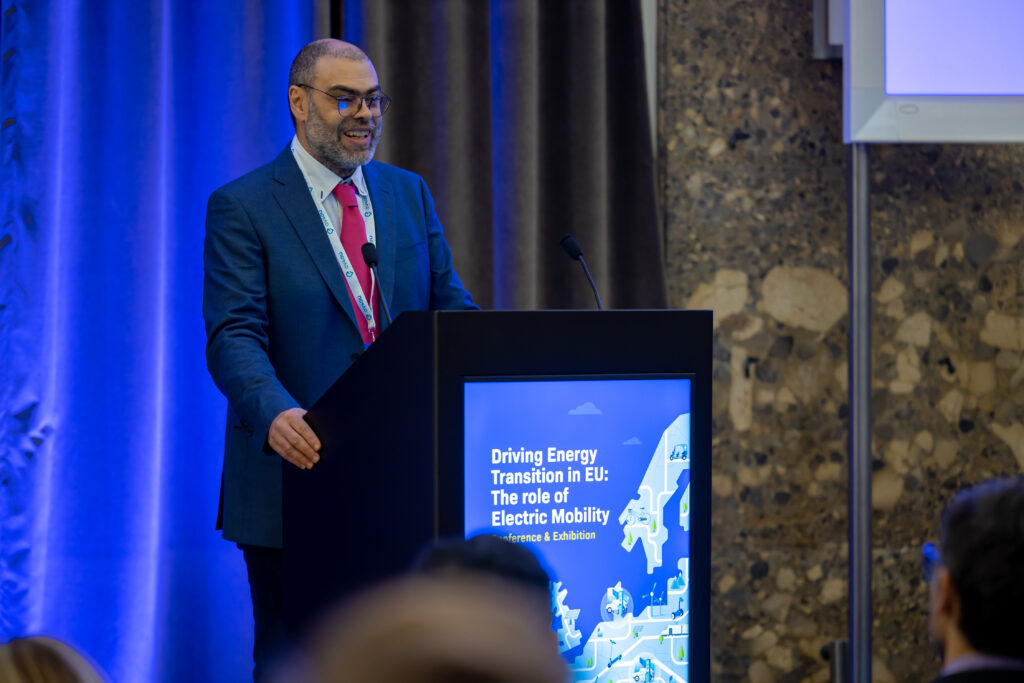

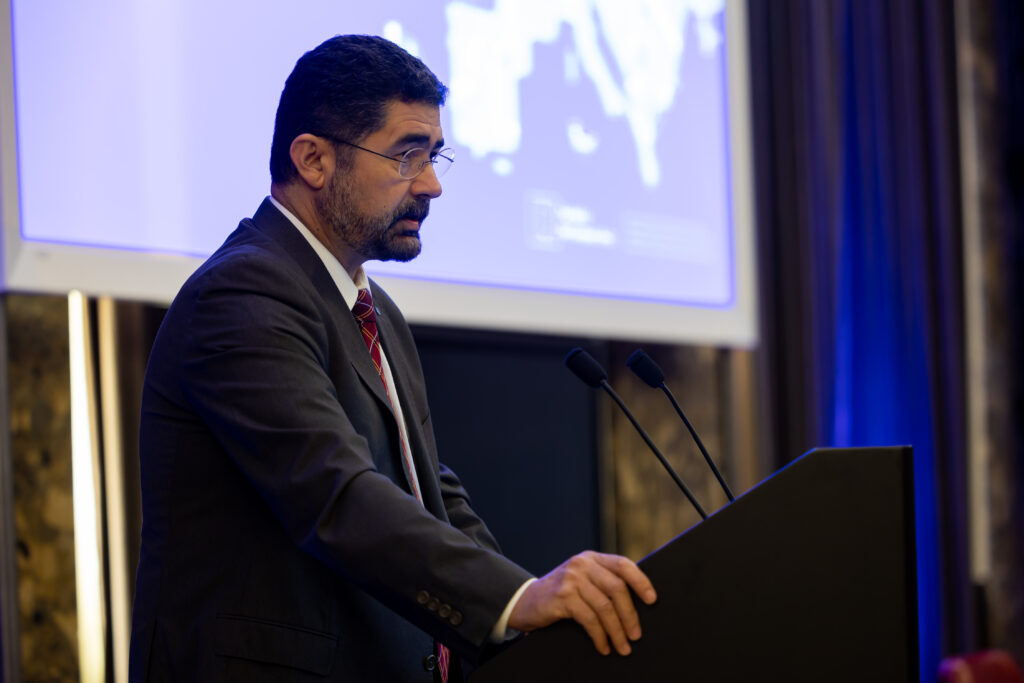
The stage was then set for a full day of discussions on innovation and sustainability in the field of electric mobility.
Session 1: Exploring the European Electric Mobility Landscape
The first session provided an overview of electric mobility across Europe and the latest advancements in V2X (Vehicle-to-Everything) technologies. Moderated by Hugo Morais, the panel included insights from experts representing four EV4EU Horizon Europe Sister projects that are part of the #V2X Cluster, including Marisca Zweistra (ElaadNL) from the SCALE project; Ville TIkka (LUT University) from the Drive 2 X project; Josh Eichman (IREC) representing the FLOW project and Rainer Schruth (Virtual Vehicle Research GmbH) from the XL Connect project.
Each panel member shared insights into the project’s ongoing activities, focusing on the transformative potential of V2X technologies in advancing sustainable mobility systems.
Here are some key highlights from the panel, shared by Session Moderator Hugo Morais:
- Stakeholder roles: there is a need to clarify the role and business opportunities for each stakeholder involved in mobility sectors;
- Guidelines for municipalities: these are in fact needed to organize the cities for electric mobility;
- Batteries degradation: it is crucial to assess the impact of external factors and usage conditions in the degradation of the batteries, when providing grid services
- Flexibility provided by EVs: flex services are very heterogenous in European countries, creating barriers in the development of solutions. The harmonization and coordination between system operators is an important challenge.
- Digital twins: to invest in modeling an entire eco-system including electricity grid, transportation sector and buildings in digital twins, allows the simulation and prediction of future scenarios reducing the risks associated with the development of emergent technologies.
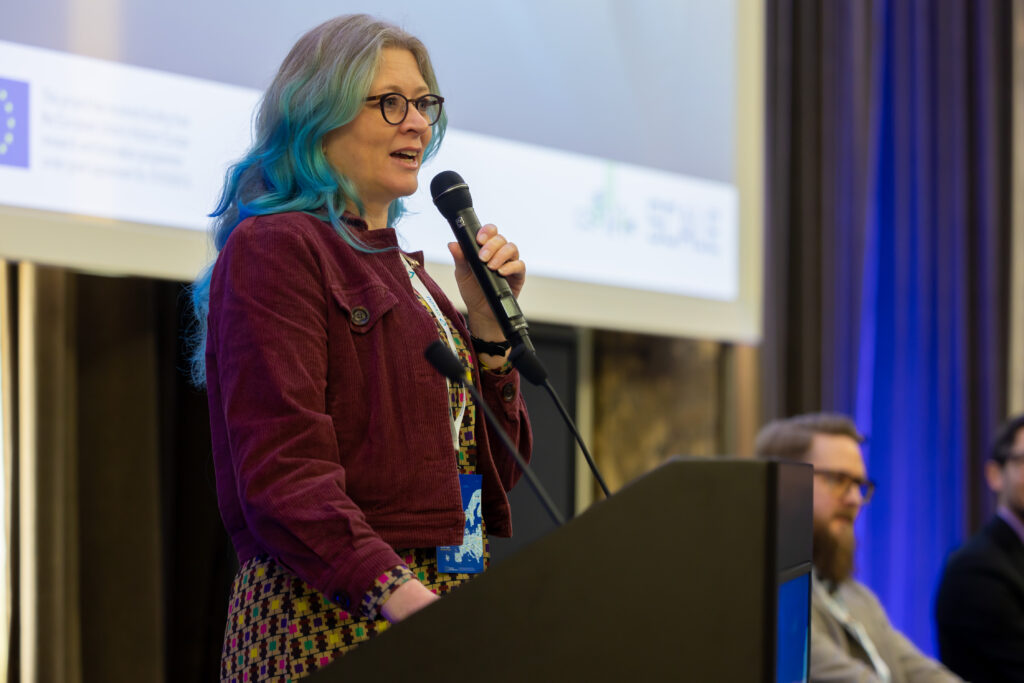
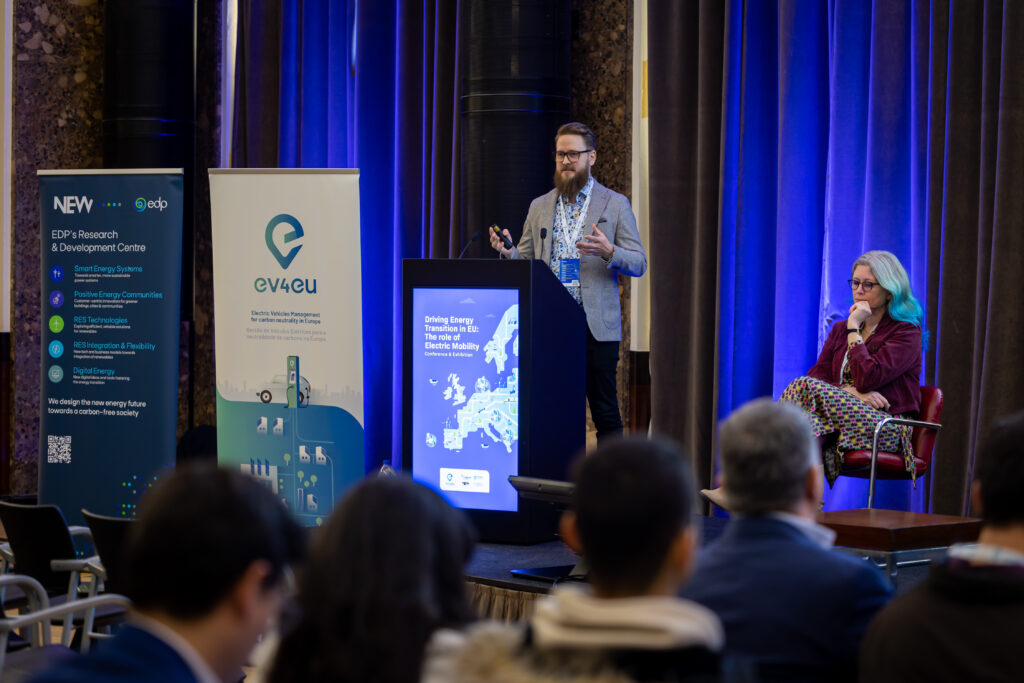
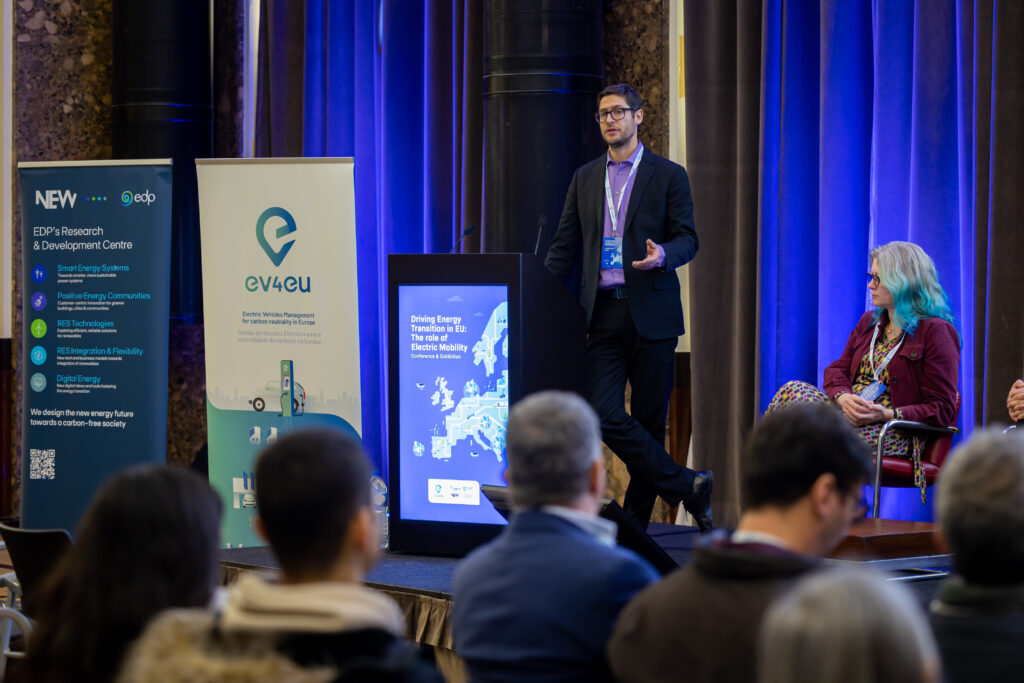
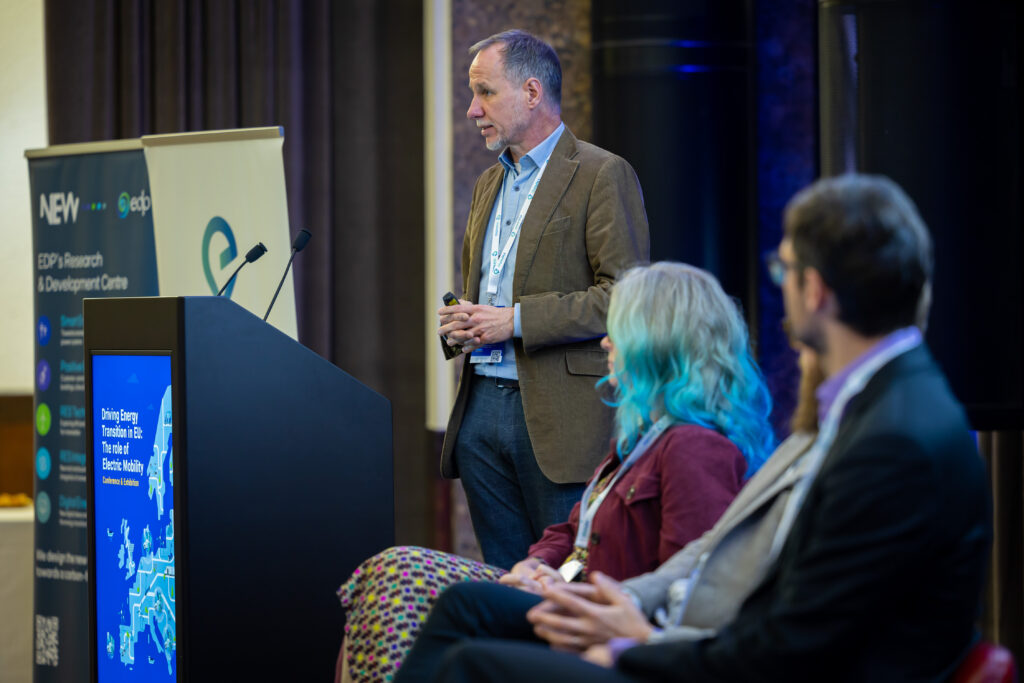
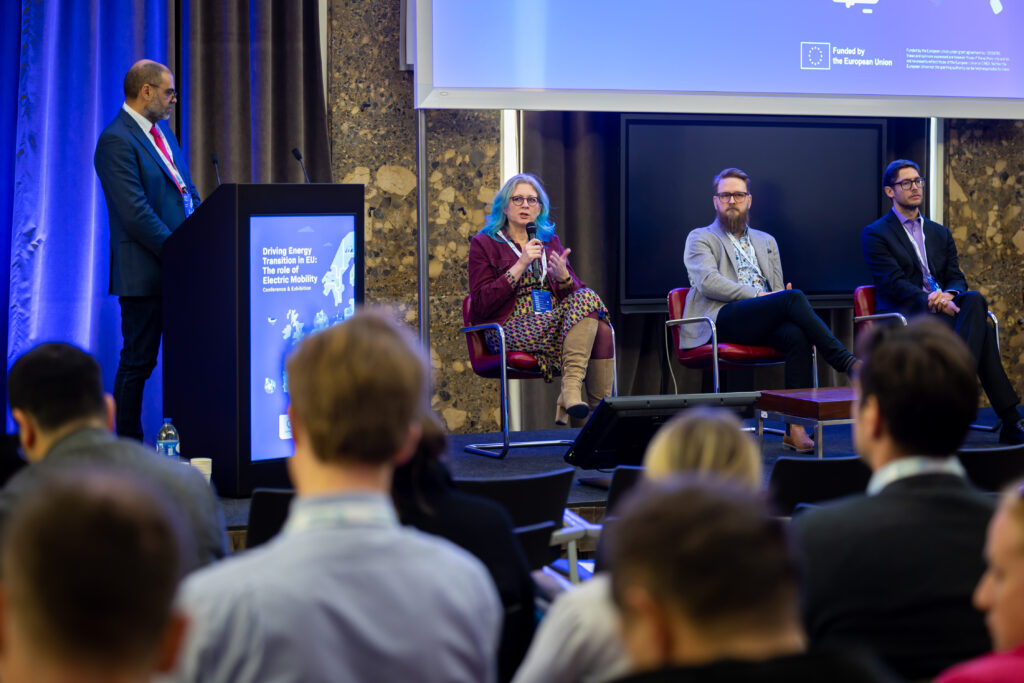
Session 2: Charging Forward with Technology
Hosted by EDP NEW, Session 2 focused on cutting-edge advancements in EV management and charging technologies. Moderated by Tiago Lourenço (EDP NEW) the panel included as speakers Jorge Martins from REN – Electricity and Natural Gas Transmission & Distribution Group operating in Portugal and Chile – presenting the new Fast charging using transmission network Speed-E; Rui Gonçalves from E-Redes on the new flexibility solutions to address the challenges of the energy transition for grids; Duarte Dias from withUS focusing on the company innovative and highly cost-effective add-on device that connects between the electric vehicle and any Electric Vehicle Supply Equipment (EVSE), regardless of the brand, model or type; and Gonçalo Castelo Branco from EDP Comercial on how the company is leading a digital-first transformation, integrated approach tailored for both residential and corporate clients and contributing to the acceleration of the EV paradigm.
The discussion emphasized the critical role of infrastructure and smart technologies in enabling a seamless energy transition.
Session Moderator Tiago Lourenço shared the following key highlights from the panel:
- The Speed-E solution is paving the way for high-power EV fast-charging directly connected to the transmission grid, enabling the electrification of long-haul heavy-duty vehicles.
- Dynamic solutions like market-based local flexibility, flexible EV charging, and adaptive grid connection agreements are transforming electricity distribution infrastructure, making it more efficient and dynamic.
- Smart and controllable devices are essential to optimizing EV charging, ensuring reliable and predictable performance across electrical infrastructures.
- Emerging technologies are shaping innovative business models for EV charging, including high-traffic hub solutions, vehicle-enabled flexibility, storage-integrated charging stations, combined PV and storage management, and smart charging systems.
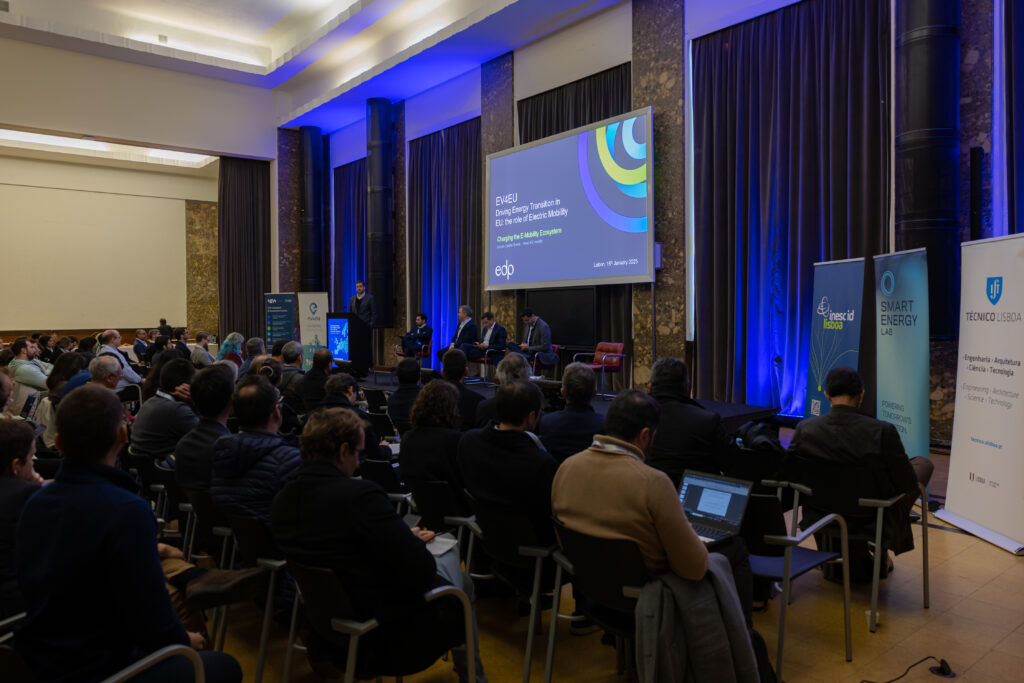
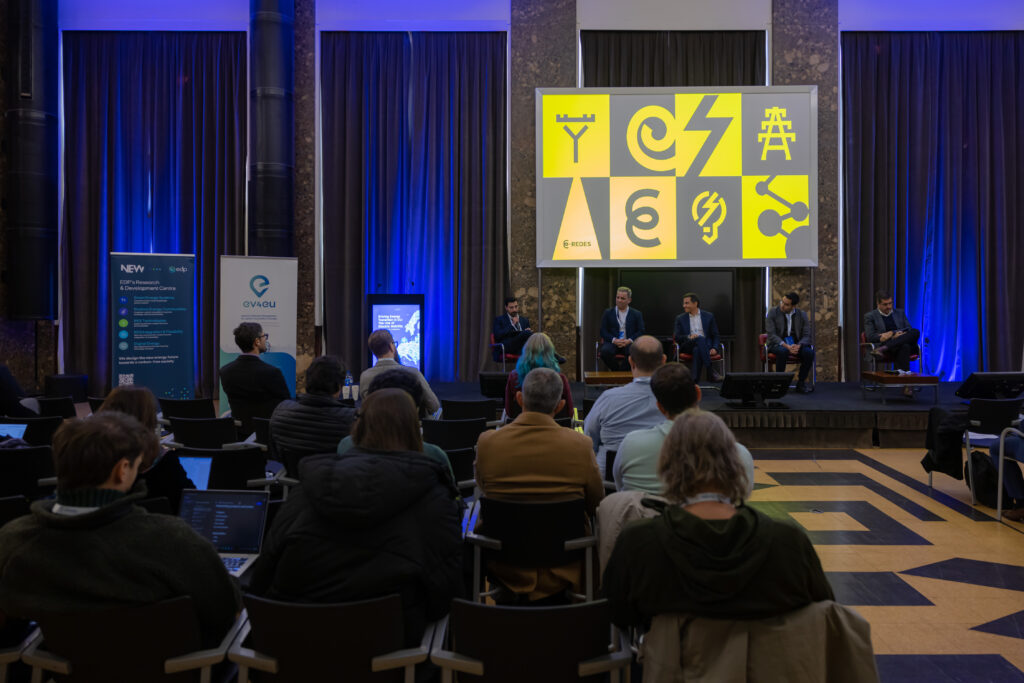
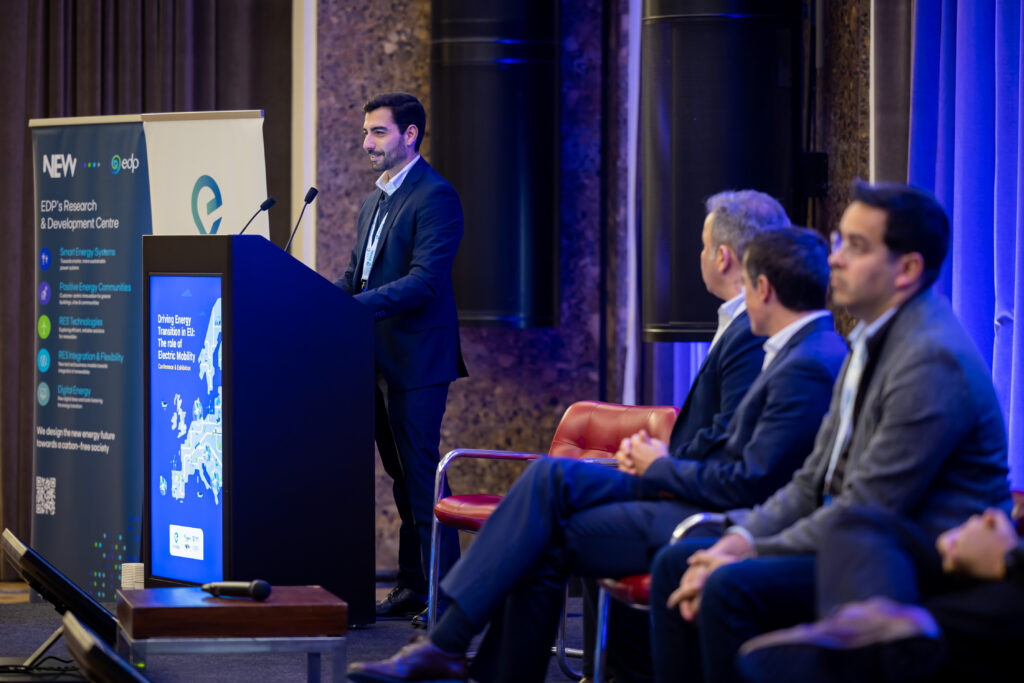
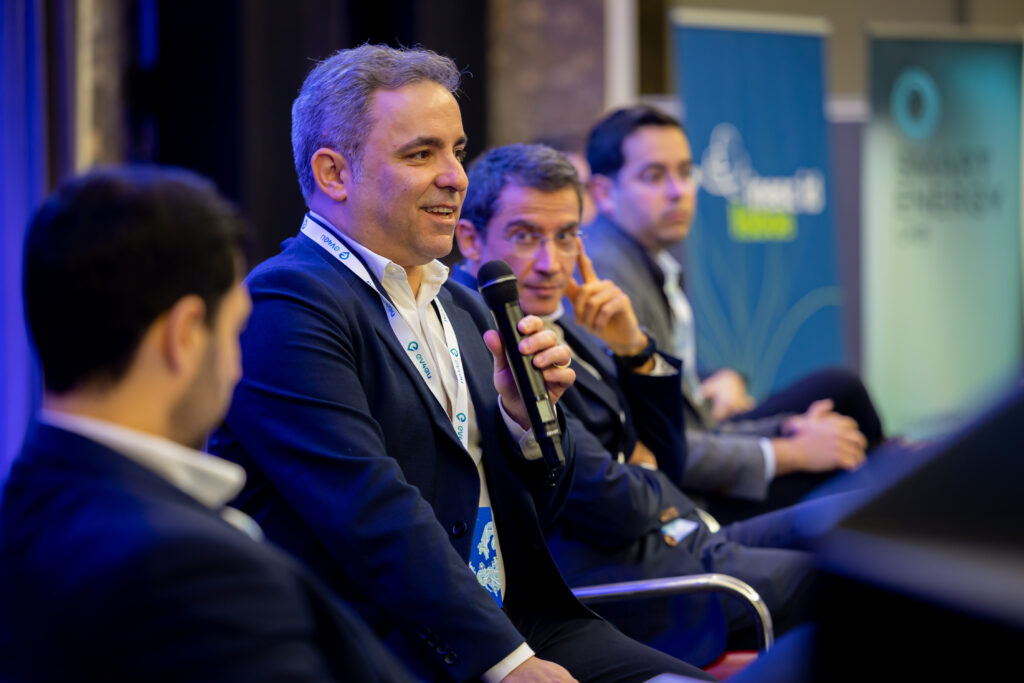
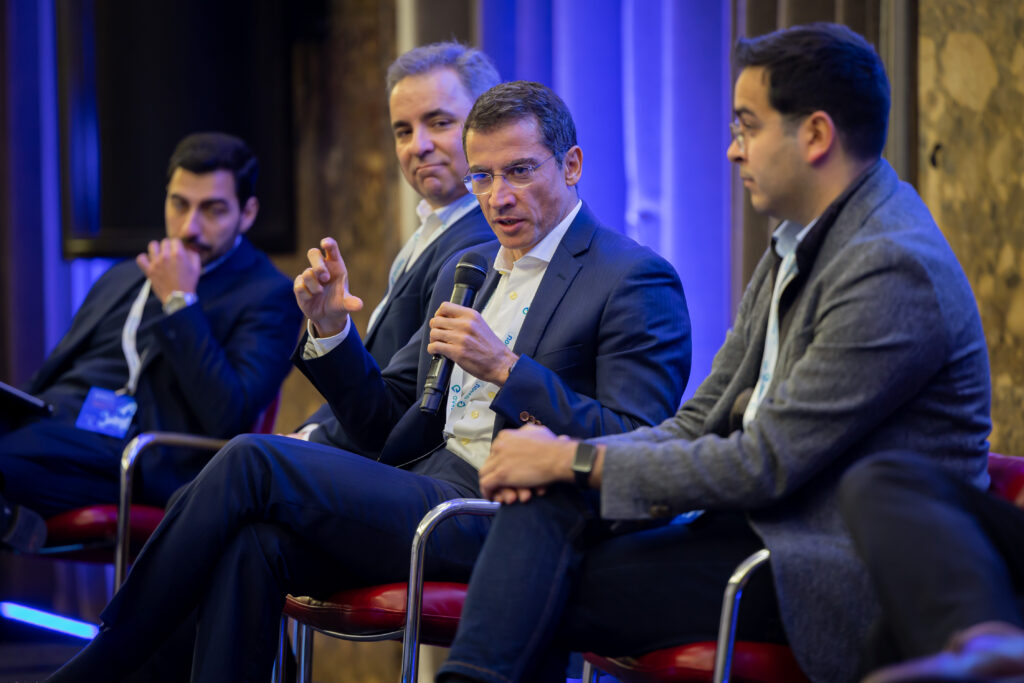
Following the conclusion of Panel 2, attendees enjoyed a networking lunch while exploring the Exhibition area. The EV4EU Exhibition was available for all participants to visit throughout the day, featuring 11 booths with cutting-edge solutions in electric mobility: INESC-ID I EDP I Smart Energy LAB I EV4EU I DEEC Técnico I Aliança para a Transição Energética I FST Lisboa I e-mob – smart charging solutions I MOBI.E I i-charging and Stellantis who hosted a Test Drive experience throughout the day allowing participants to go for a TEST DRIVE behind the wheel of three cutting-edge electric vehicles: Peugeot 5008, Fiat 600 and a Citroen C3.
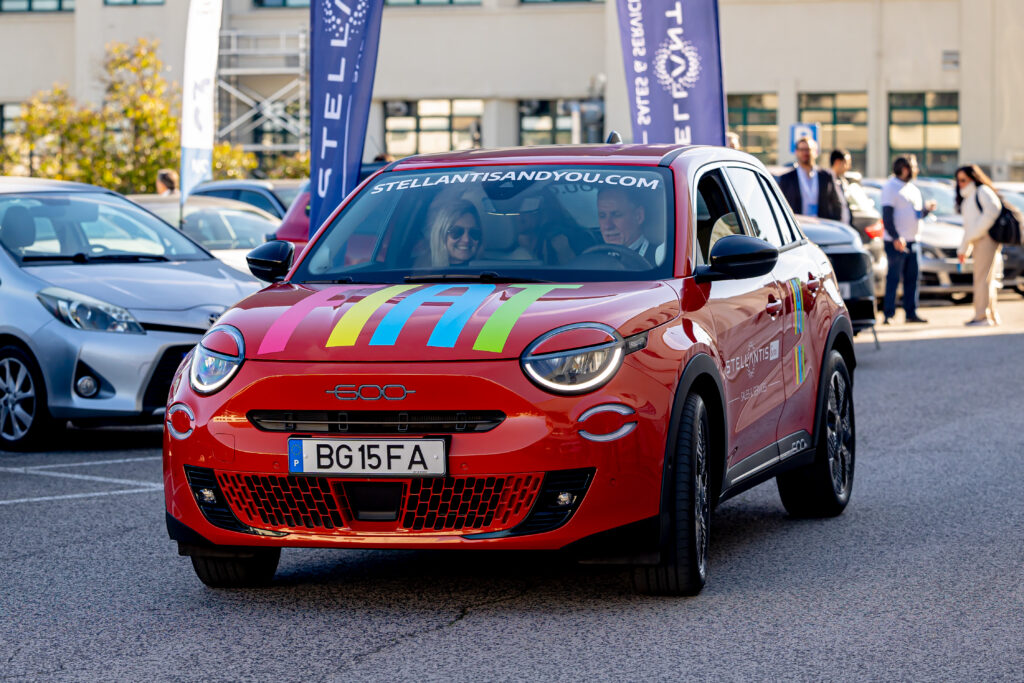
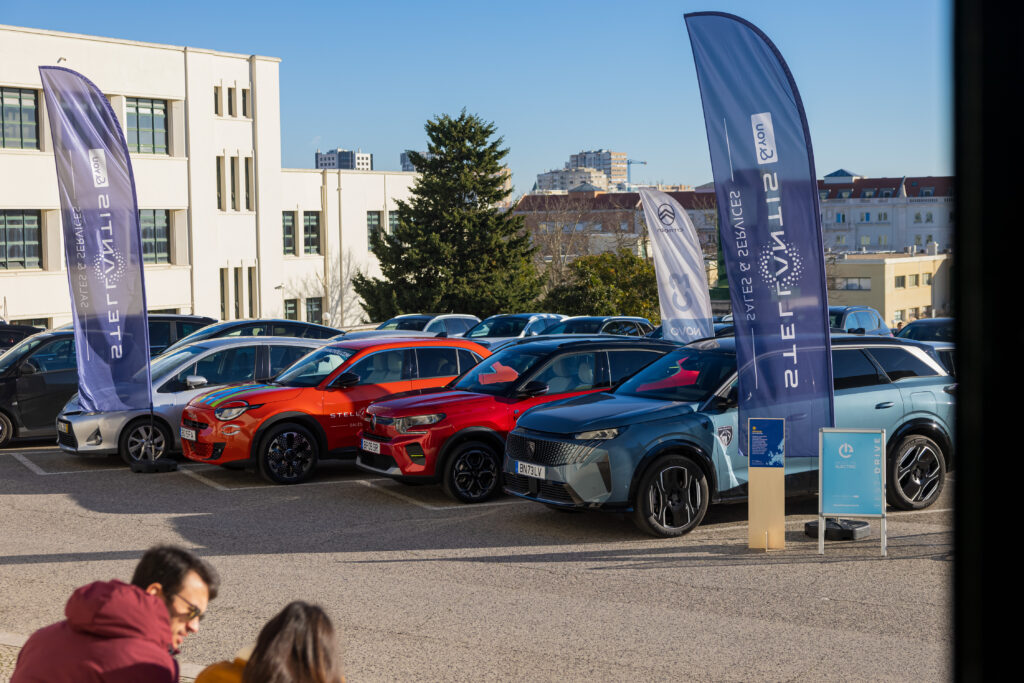
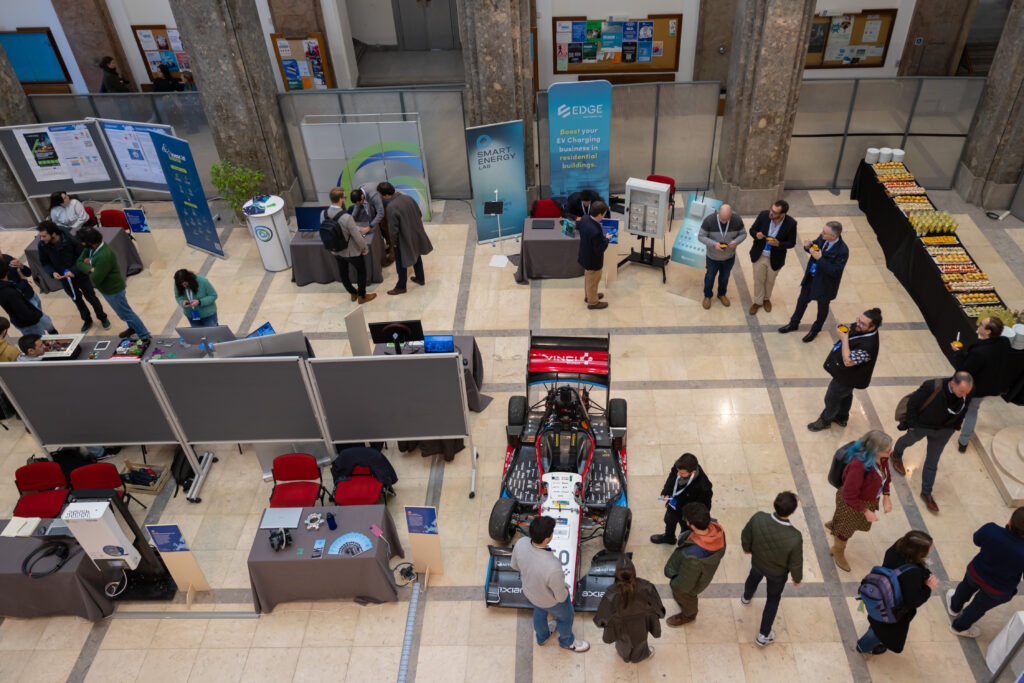
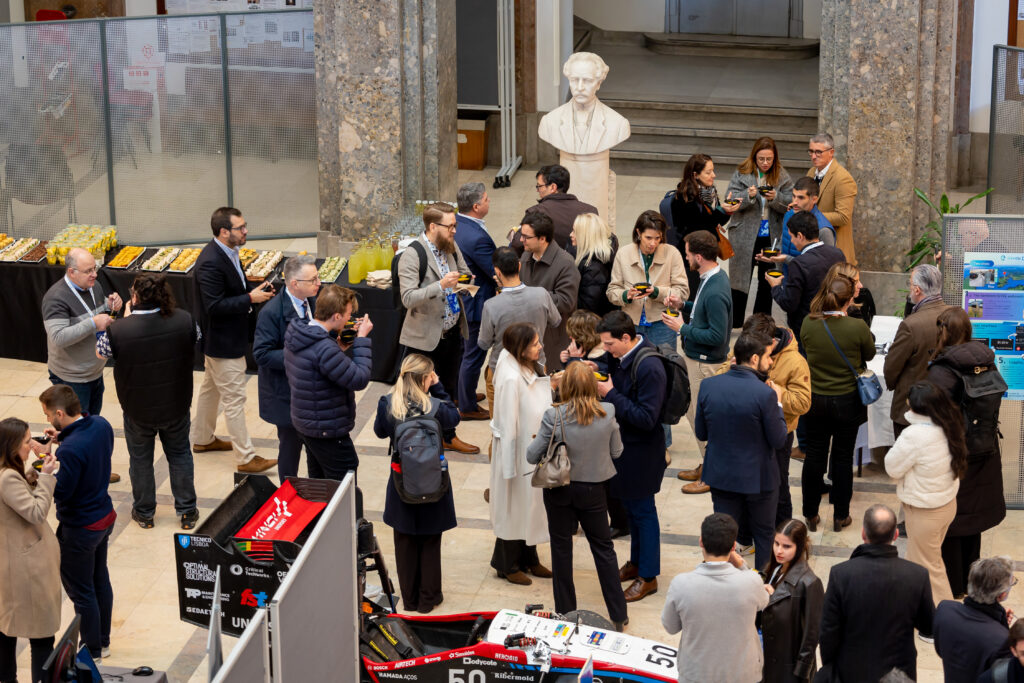
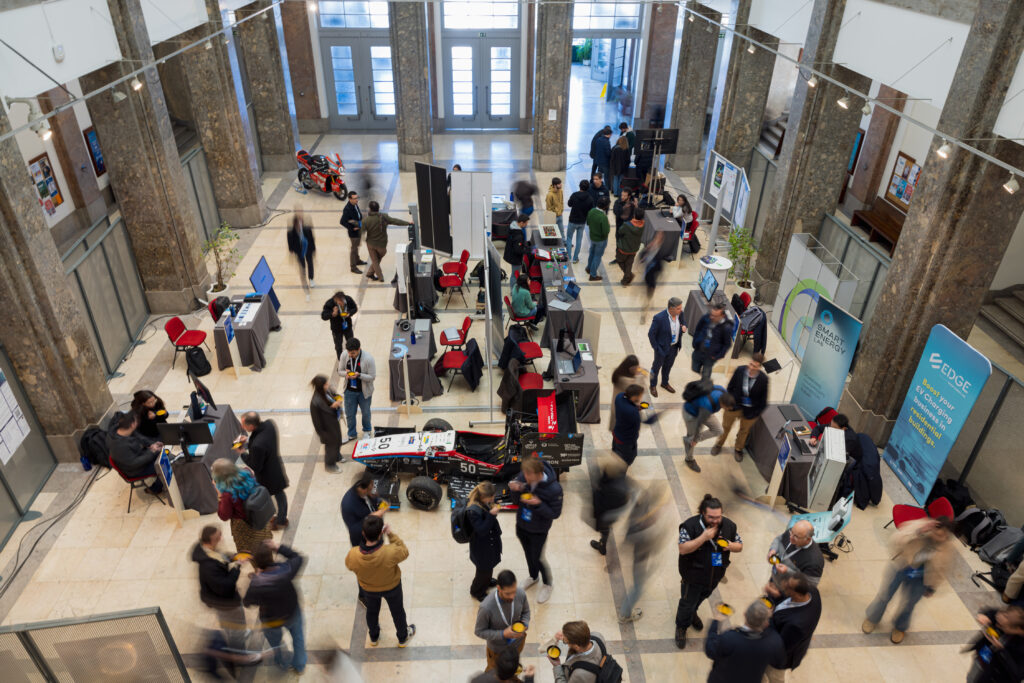
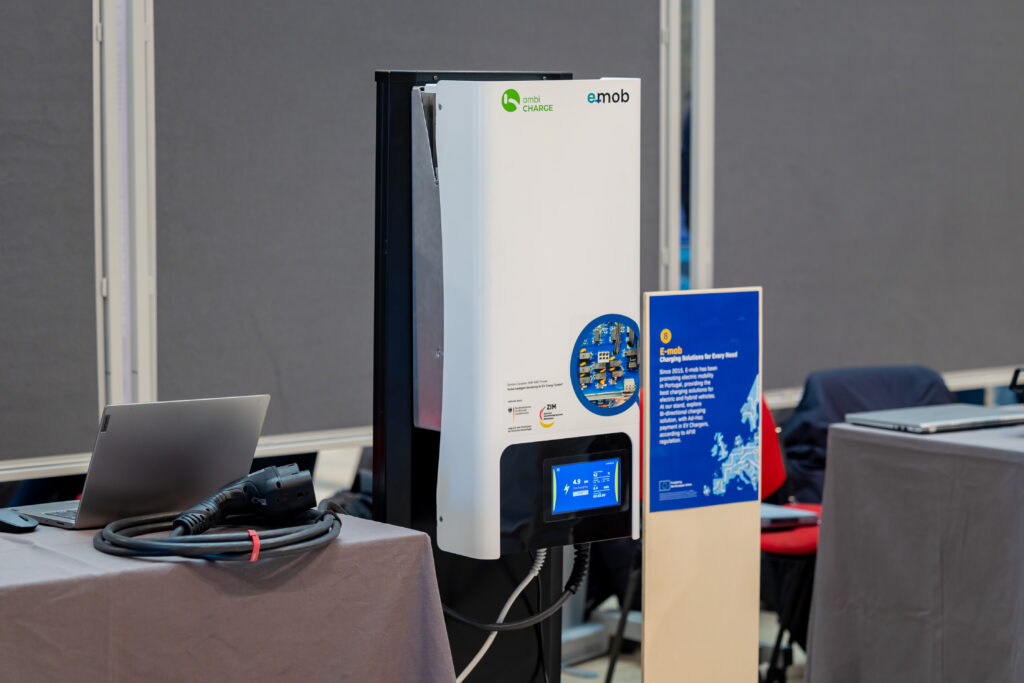
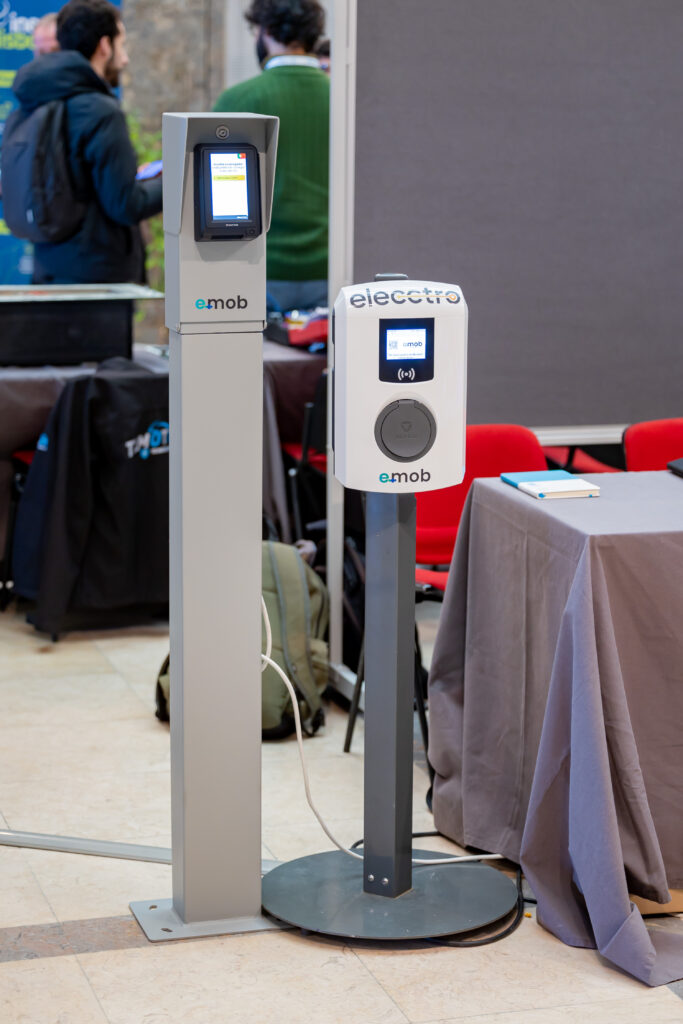
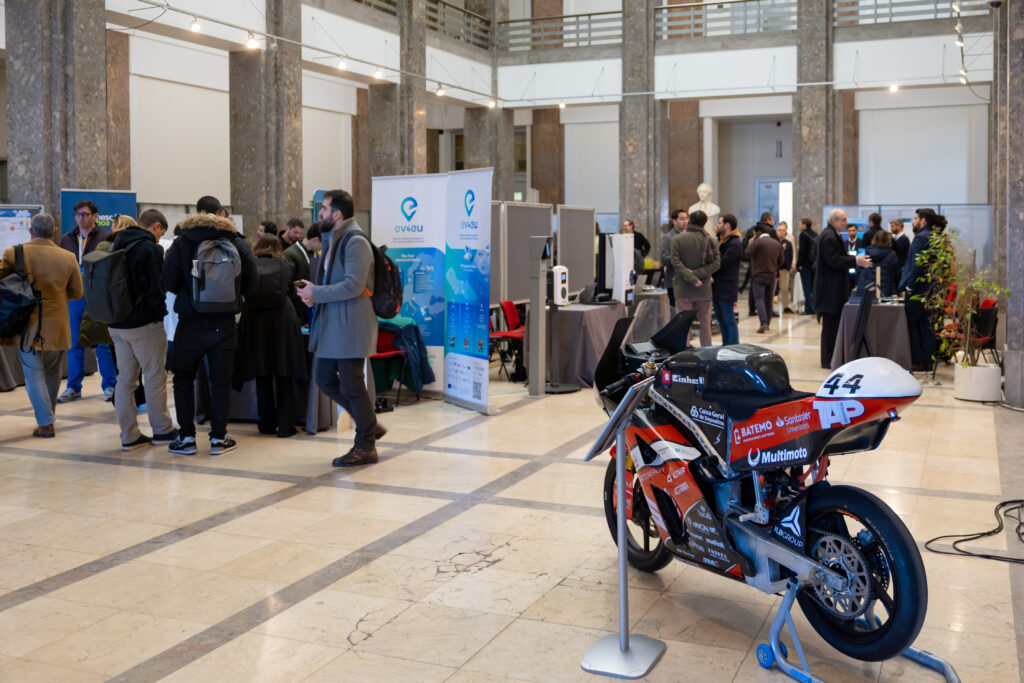
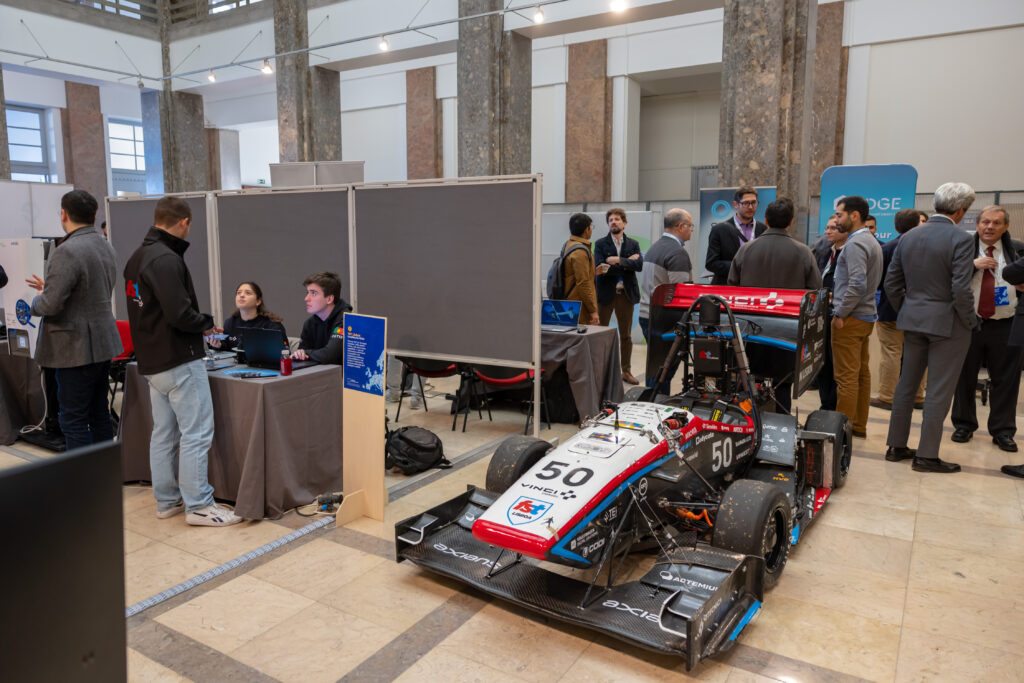
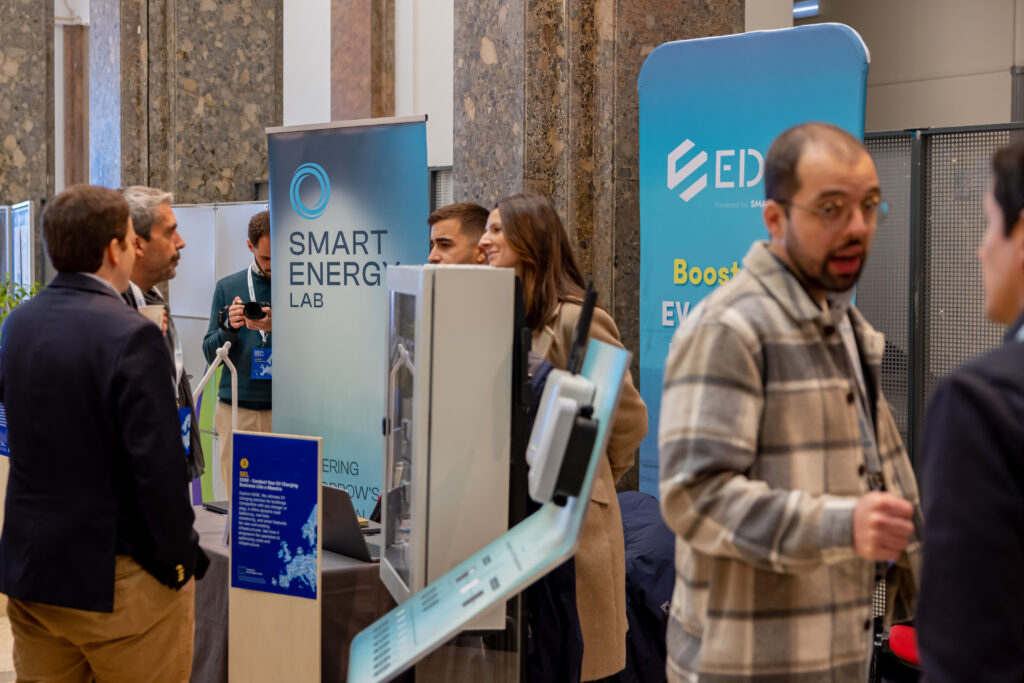
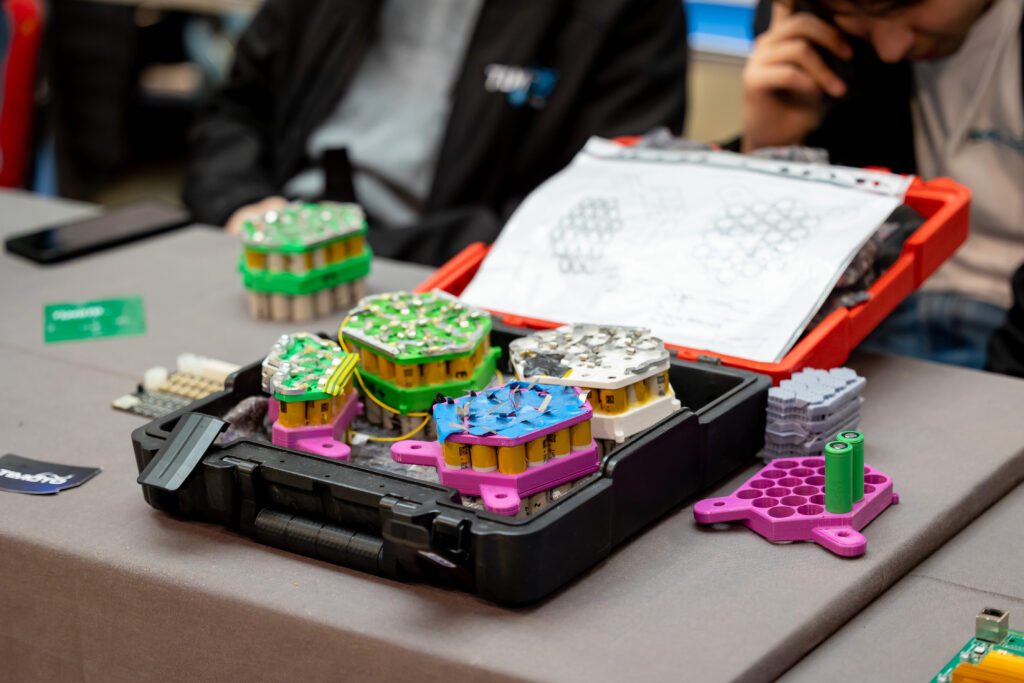
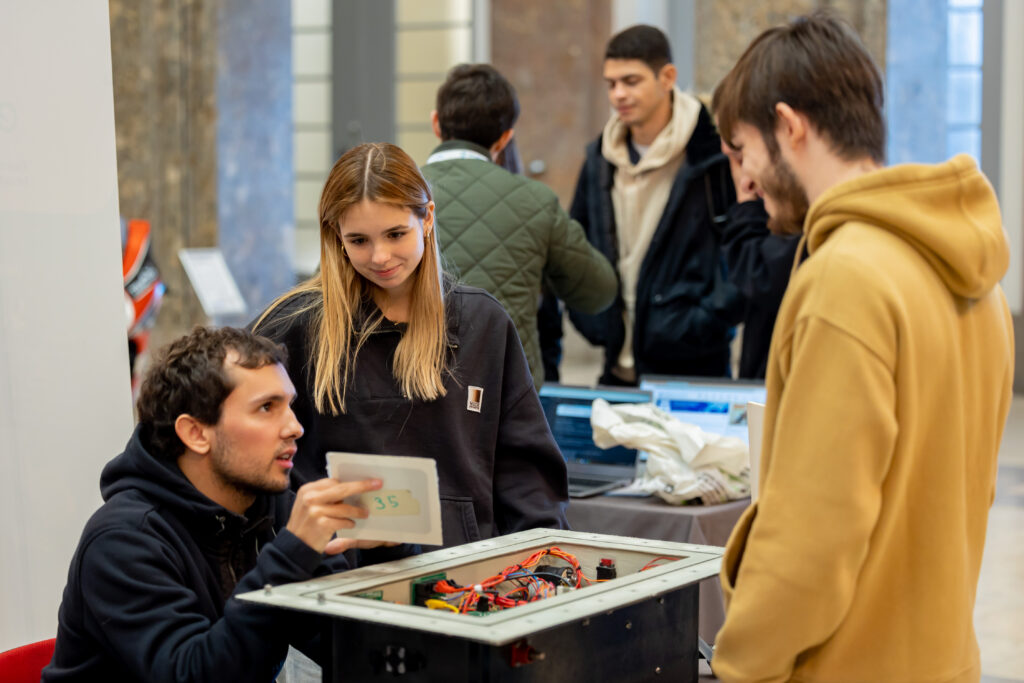
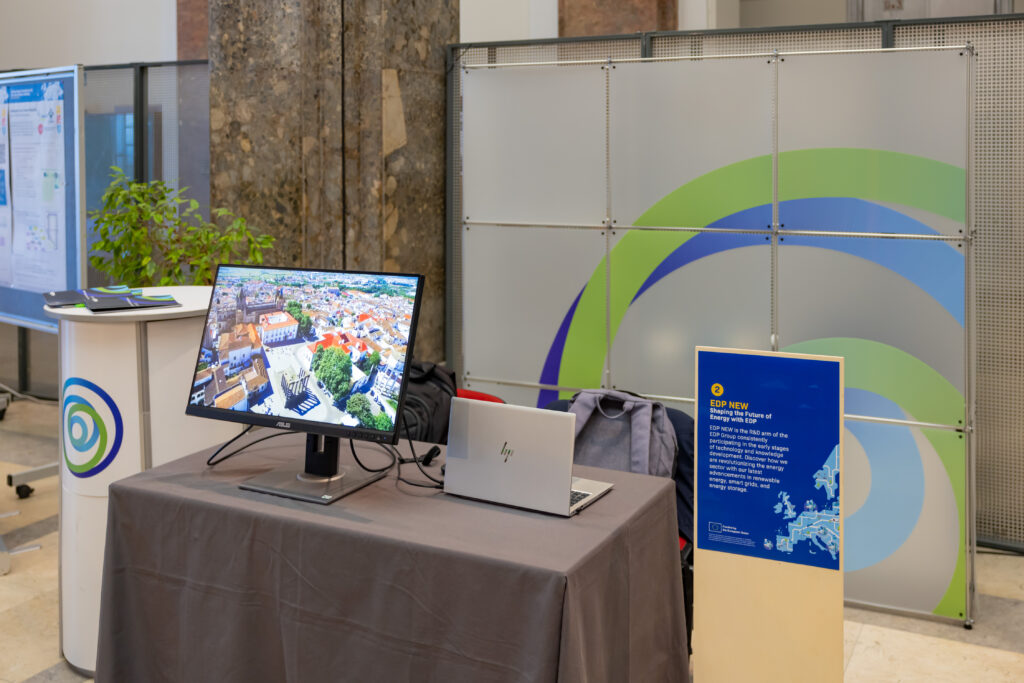
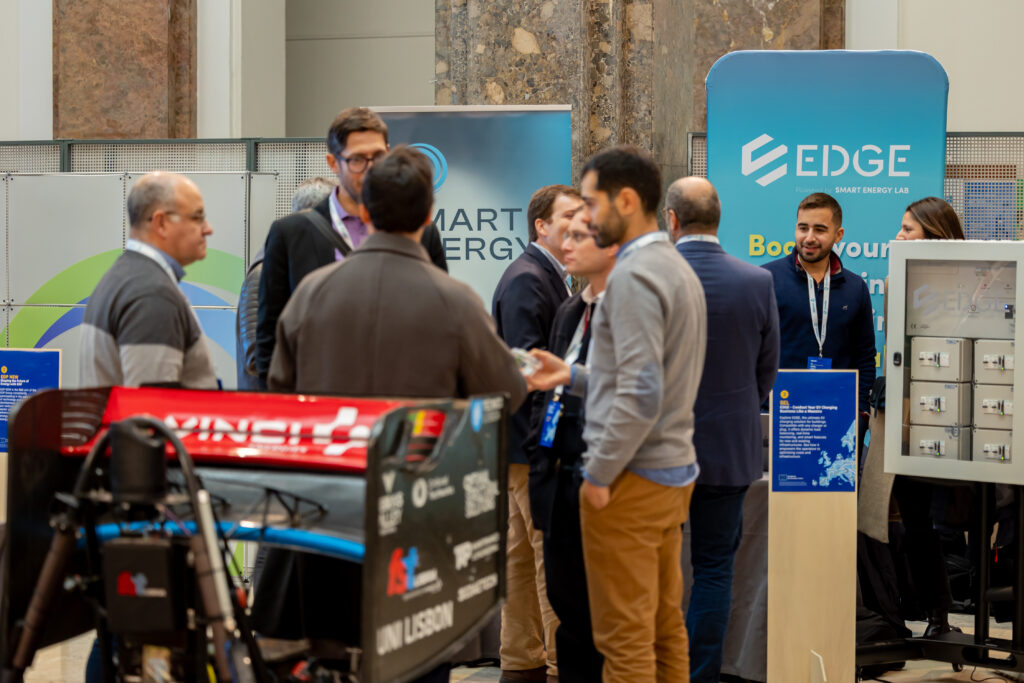
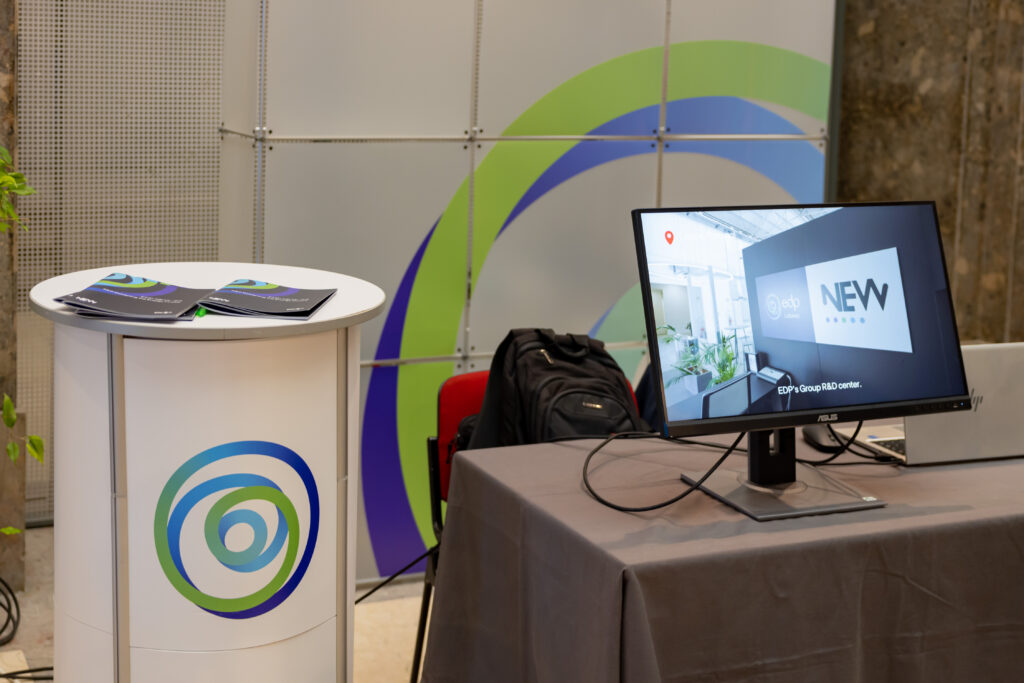
Session 3: Tackling V2X Challenges and Opportunities
Back in the Conference room, the 3rd panel discussion explored deeper into V2X technologies. João Torres, from the Smart Energy Lab, moderated the session, which was also organized by the Lab.
The session featured a round of presentations with Hugo Morais offering an in-depth perspective on the EV4EU project; Bruno Vieira from Electricidade dos Açores (EDA) providing an overview of the renewable energy landscape in the Azores and the region’s initiatives to promote Vehicle-to-Grid (V2G) integration; and Luís Prazeres from Grupo Brisa, a leading Portuguese company in mobility solutions, showcasing the group’s electrification strategy and its potential to unlock V2G technology opportunities.
The round of presentations was followed by a Roundtable discussion featuring industry leaders João Almeida (Coopérnico), João Abril de Abreu (EDP), and Nuno Delgado (Efacec).
Panelists discussed strategies to overcome integration challenges and maximize thel potential of V2X solutions for Europe’s energy and mobility systems.
Here are some of the panel highlights, by the panel moderator João Torres:
- V2X technology has the potential to transform EVs and their extensive cumulative battery capacity into key components of the energy ecosystem.
- V2X can play a pivotal role in the energy transition – by enabling renewable integration, enhancing system resilience, reducing costs, and providing emergency power through flexibility services.
- V2X challenges: challenges like battery degradation, user adoption, systems integration, regulatory hurdles, and cybersecurity remain significant.
The session concluded on an optimistic note, emphasizing that these obstacles and others can be overcome if all parties work together on this multi-disciplinary technology.
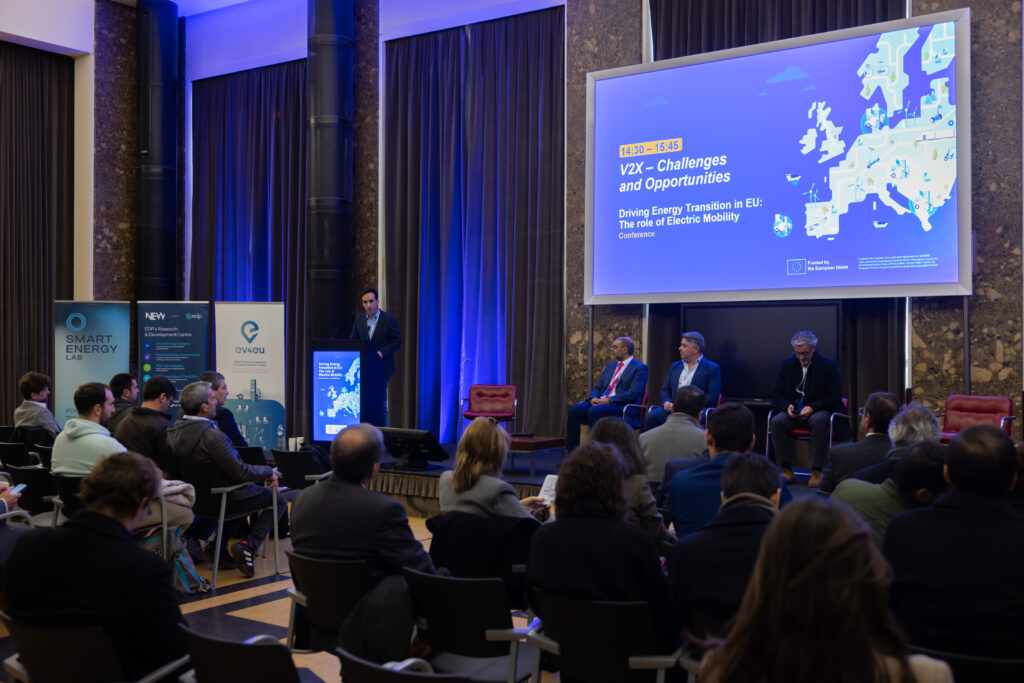
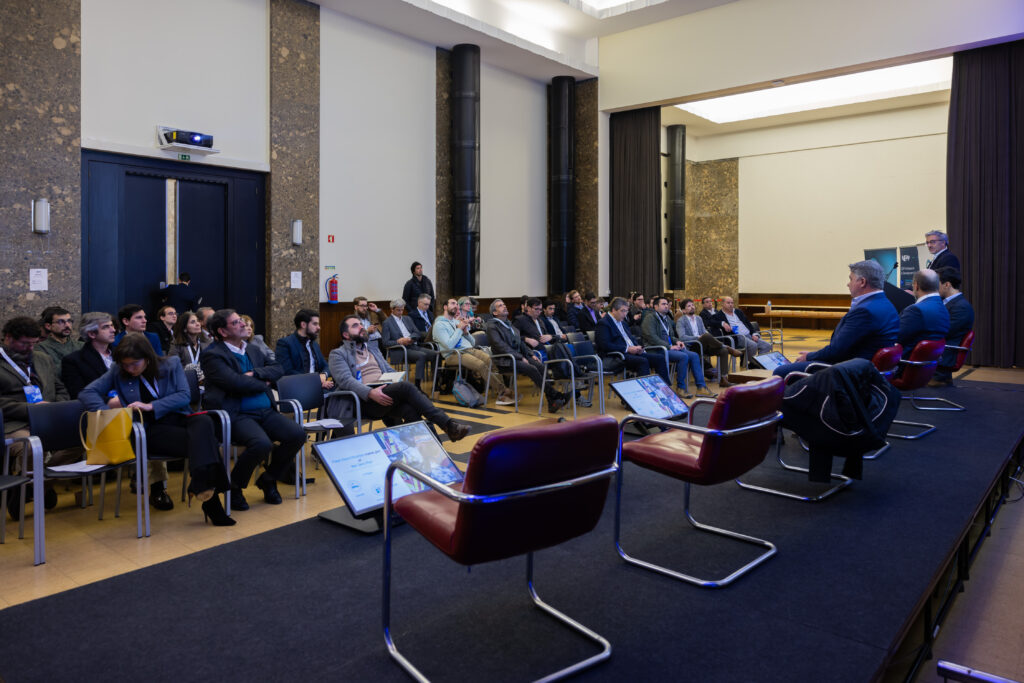
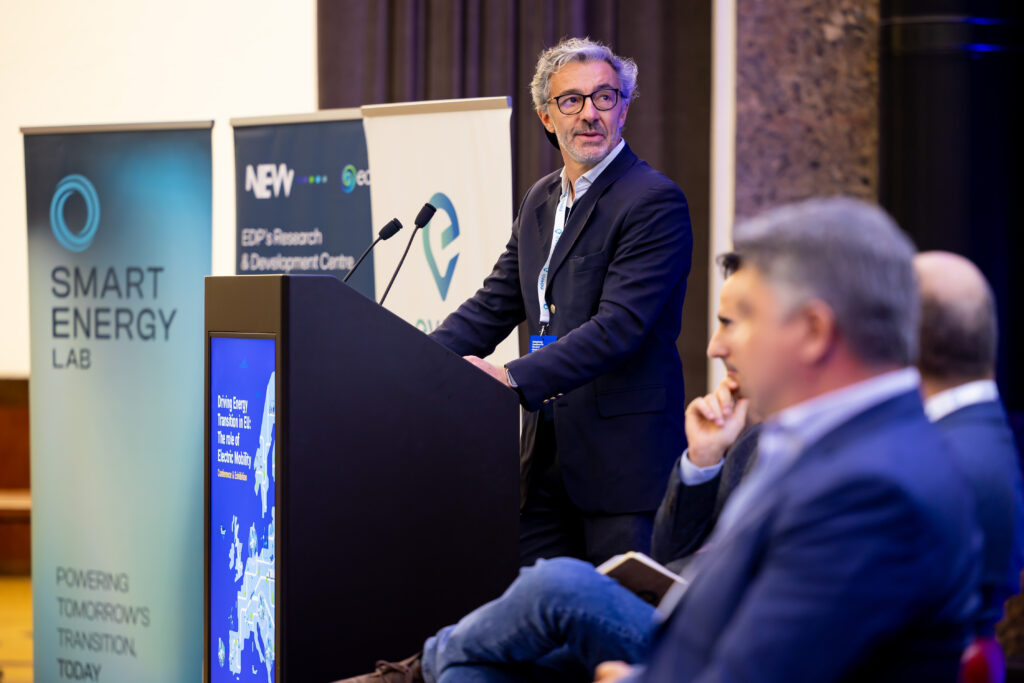
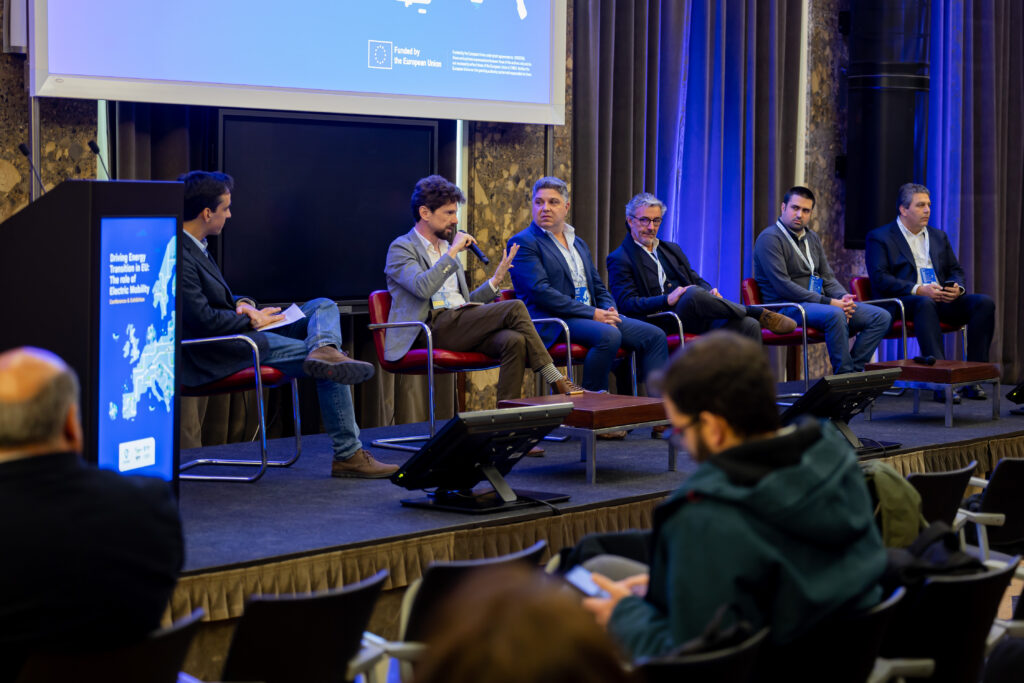
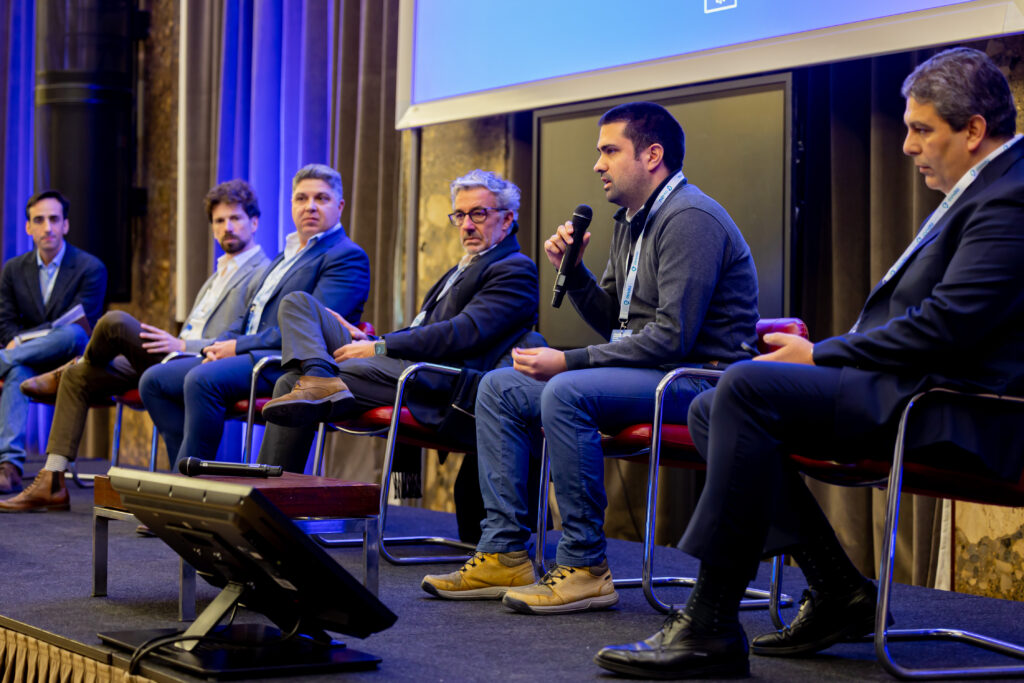
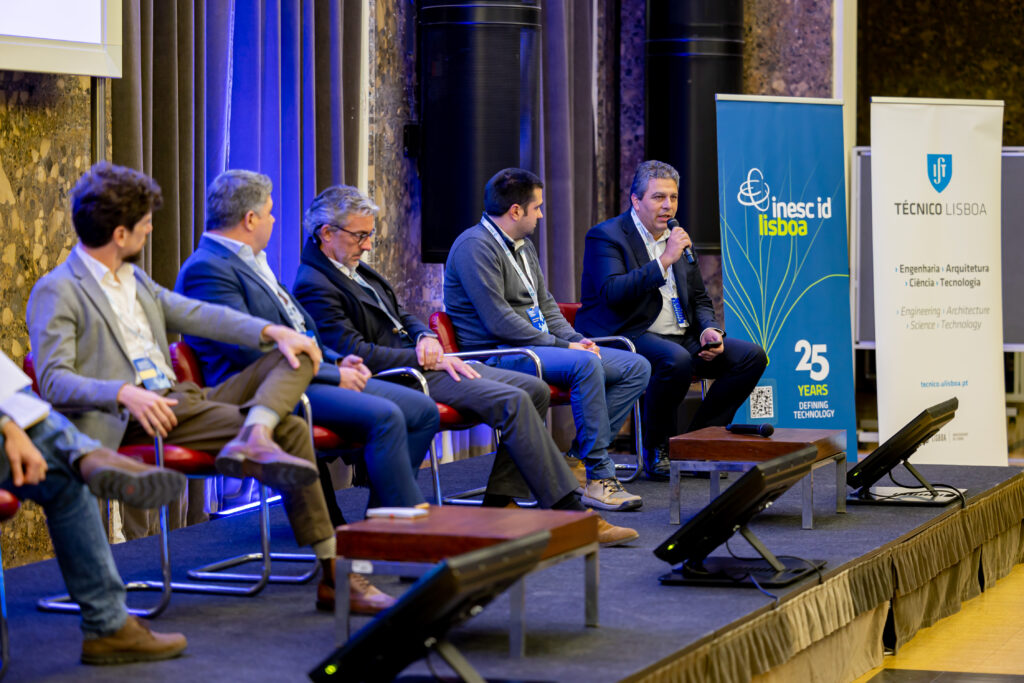
Session 4: Regulatory Framework for Electric Mobility
The last Session concluded with a discussion on the regulatory framework for electric mobility, pointing out its main Challenges and Trends. Moderated by António Vidigal, an renowned consultant in the areas of Energy and Information Technologies who was President of EDP Inovação for 13 years. The panel featured contributions from experts Jorge Esteves, the Head of the Infrastructure and Networks Division at ERSE, the Portuguese energy regulatory authority; Filipe Pinto, Director of the Electrical Energy Services at DGEG (Directorate General of Energy and Geology); Débora Melo Fernandes, Public Law and Regulatory partner at Pérez-Llorca law firm; and Alexandre Videira a board member from MOBI-E, the public entity responsible for managing and overseeing Portugal’s electric mobility network,
Panelists explored emerging trends, regulatory challenges, and strategies to foster innovation and sustainability in the sector.
Here are some final conclusions shared by the Session Moderator:
- Regulation should act as a facilitator, not an obstacle.
- V2G technology can make a significant contribution to the electric system, but aggregation is essential.
- A new organization, AFIR (Alternative Fuels Infrastructure Regulation) has been created by the European Parliament to ensure the harmonious development of charging infrastructure across the European Union.
- MOBI-E already meets a large part of AFIR’s requirements, but there is room for improvement, particularly in adapting to specific needs.
- Portugal is well-positioned to become a “Living Lab” for electric mobility and can draw inspiration from the United Kingdom’s “batteries on wheels” project.
- Electric systems need to be reinvented, and electric vehicles can play a key role.
The event concluded with closing remarks from Miguel Pupo Correia, President of INESC-ID, and Hugo Morais, who thanked participants and emphasized the importance of fostering and strengthening collaborative initiatives to achieve a sustainable and electrified future.
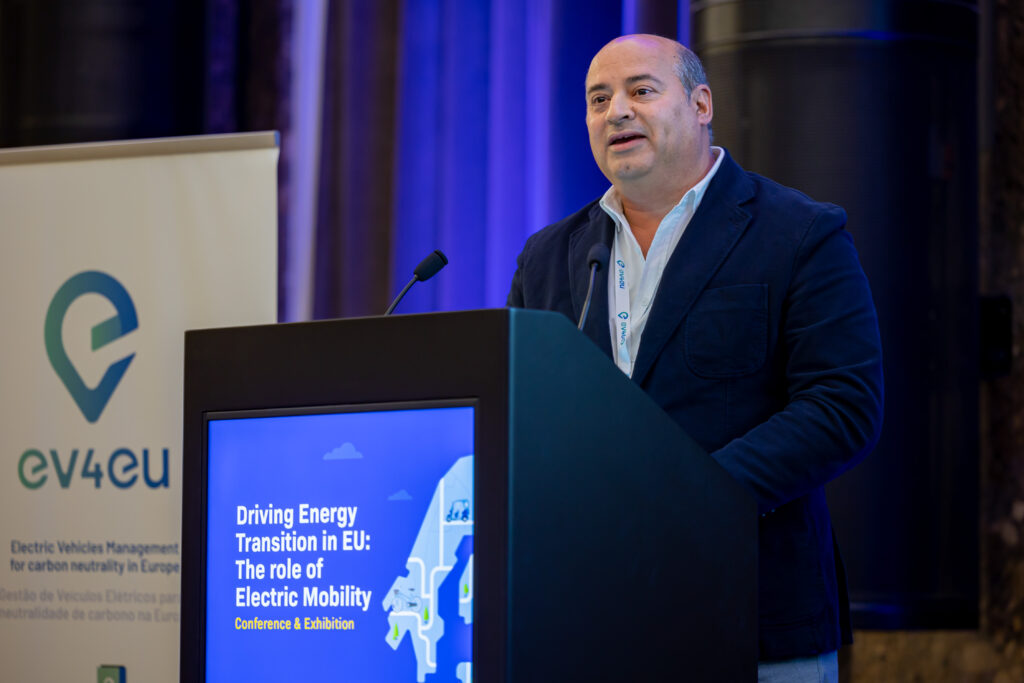
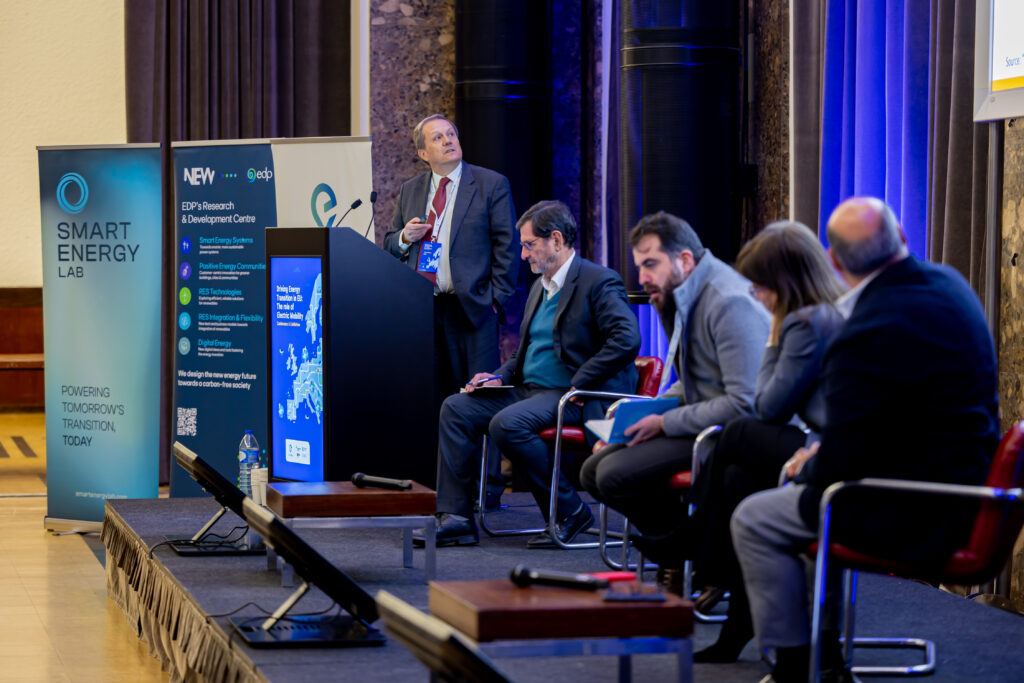
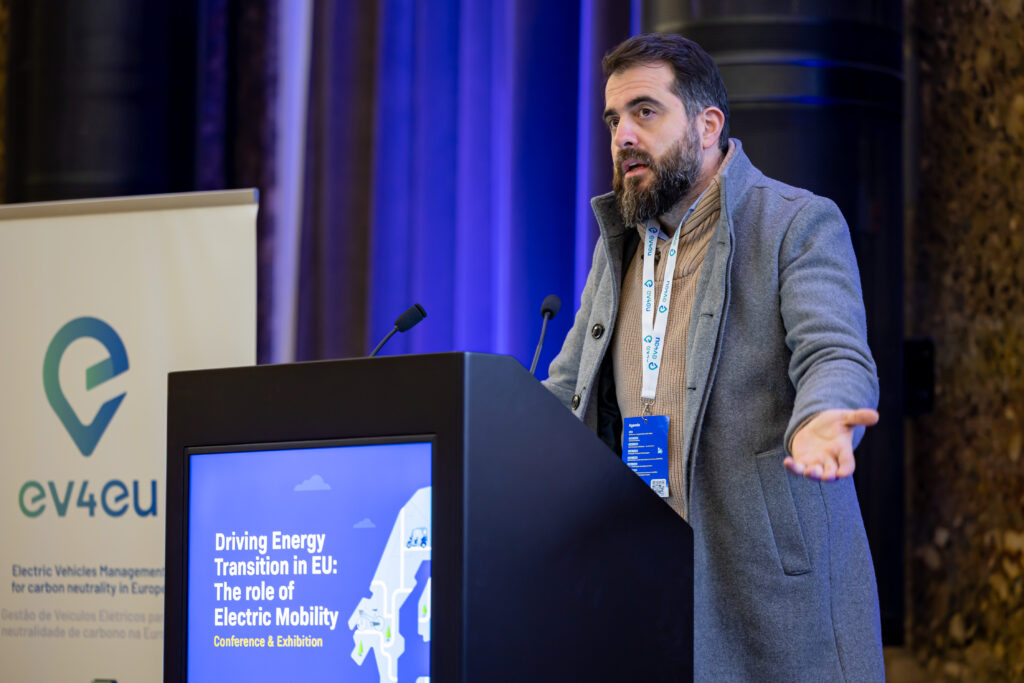
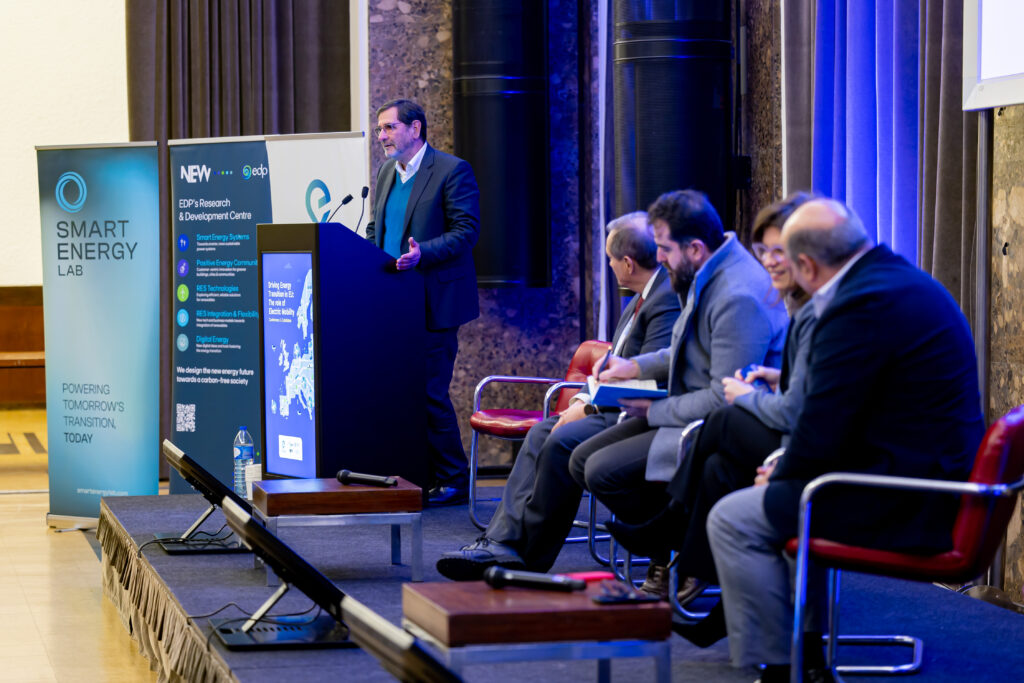
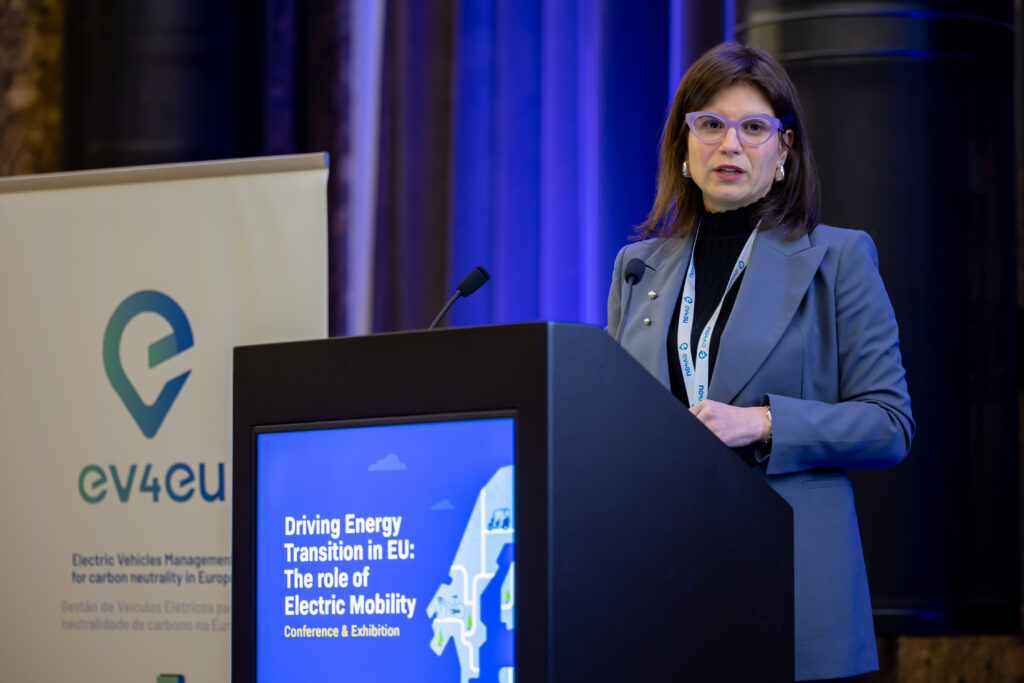
As the EV4EU Conference comes to a close, here is a small selection of the “Best Of” moments!
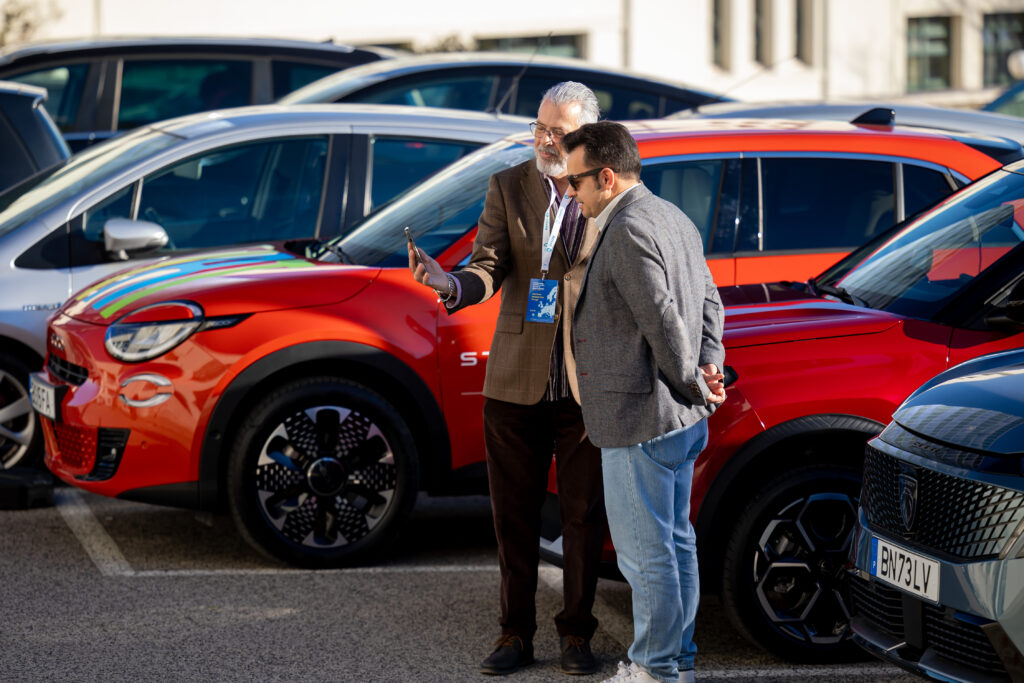
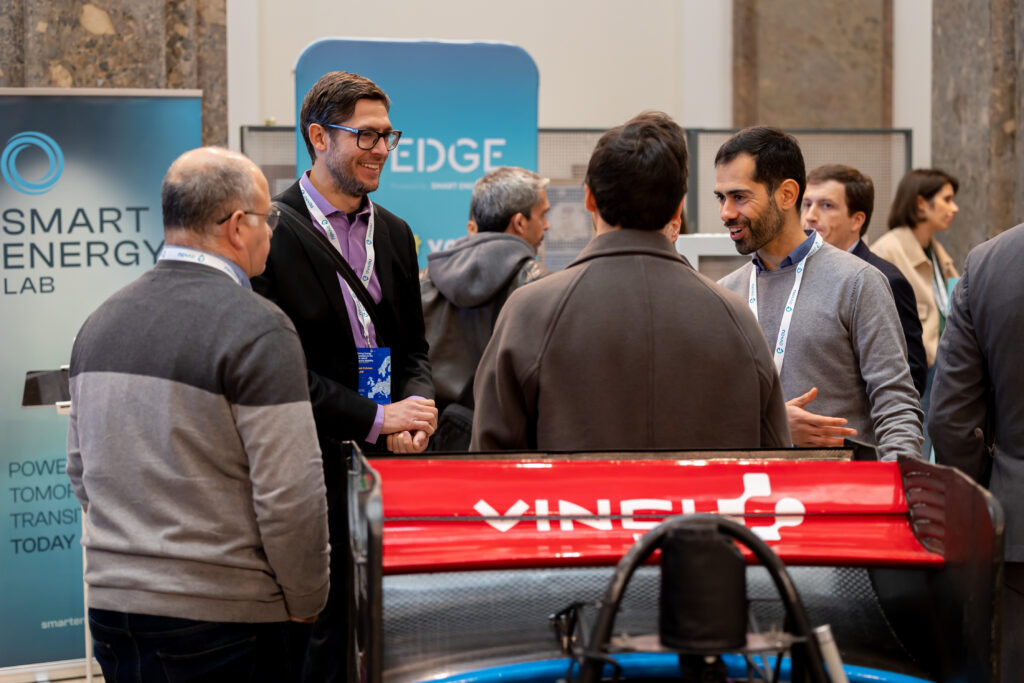

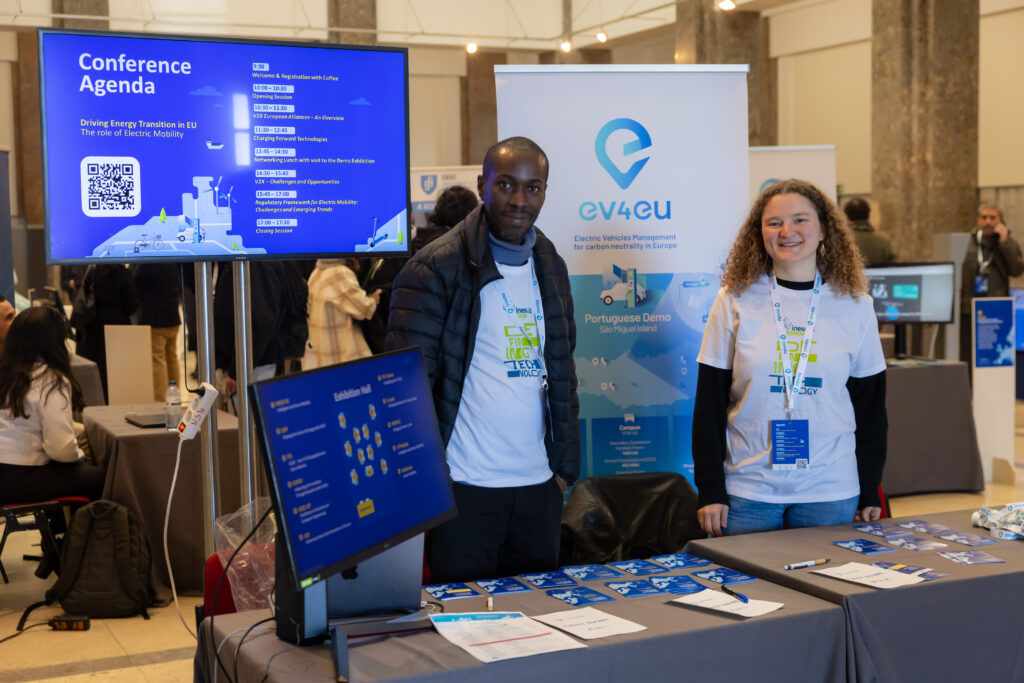
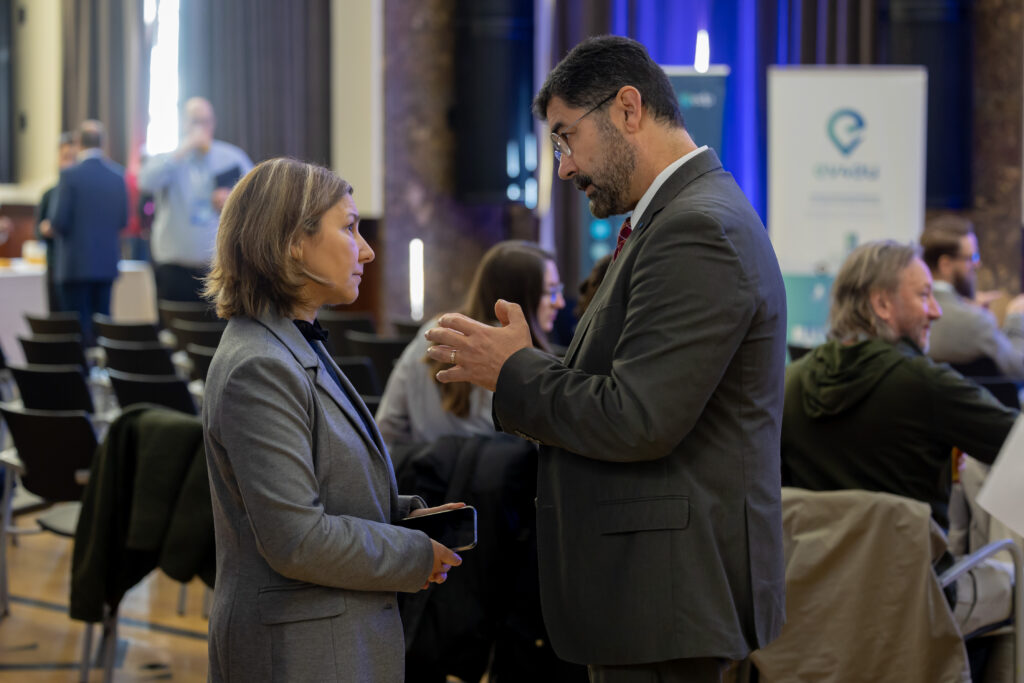
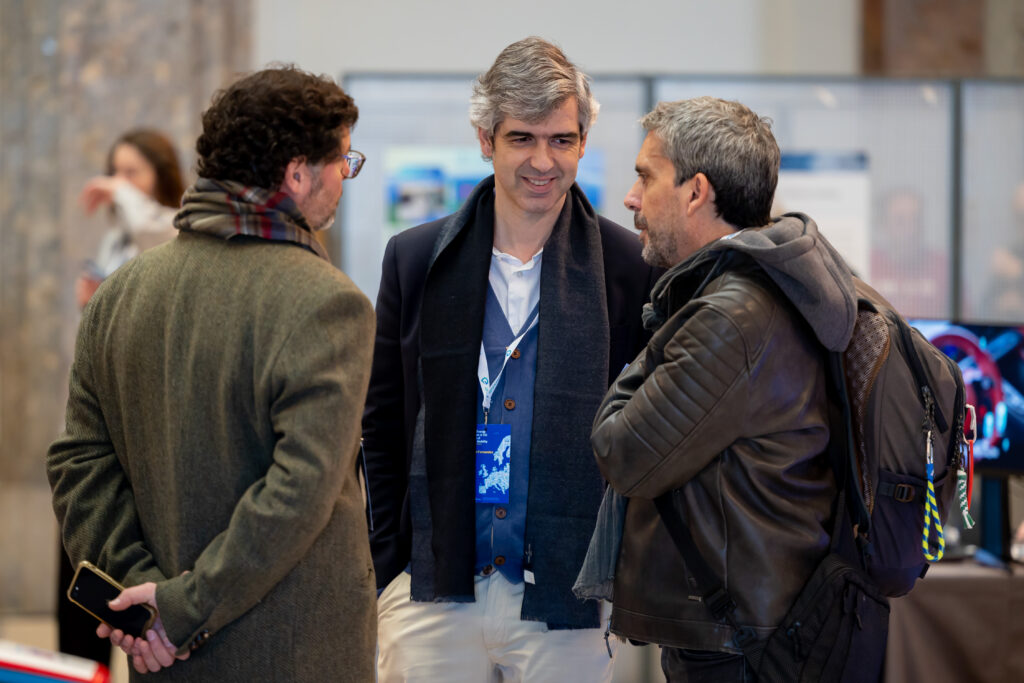
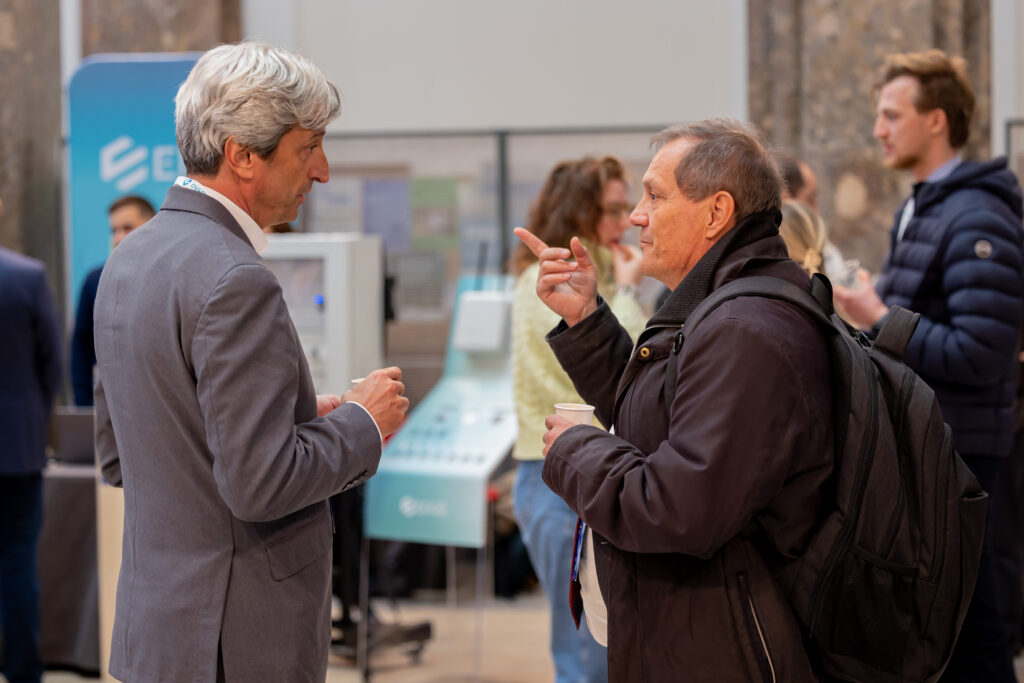
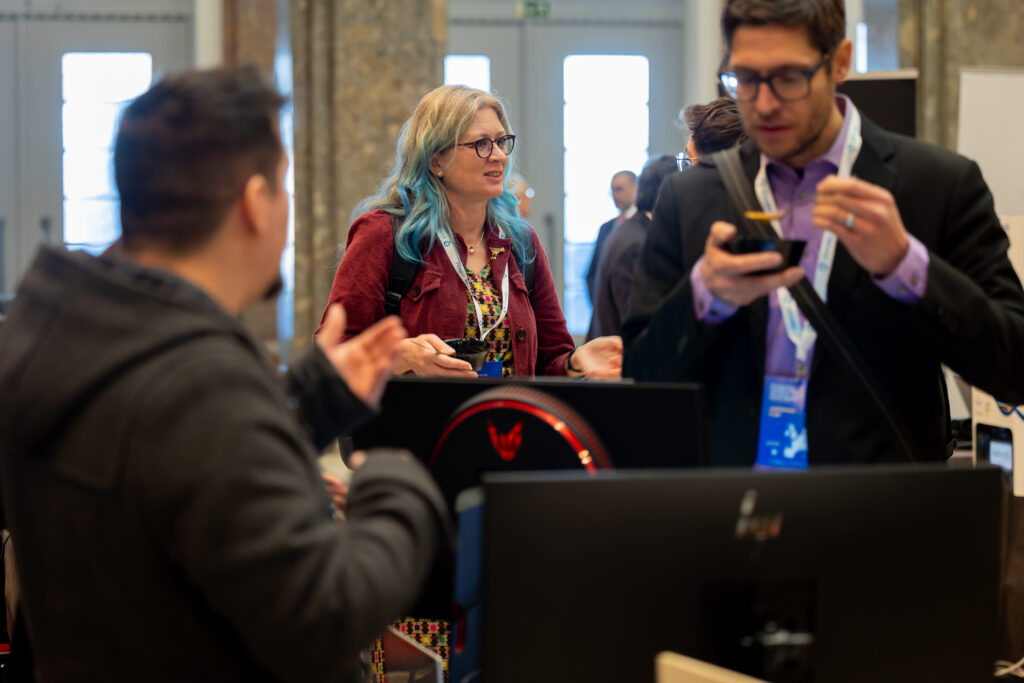
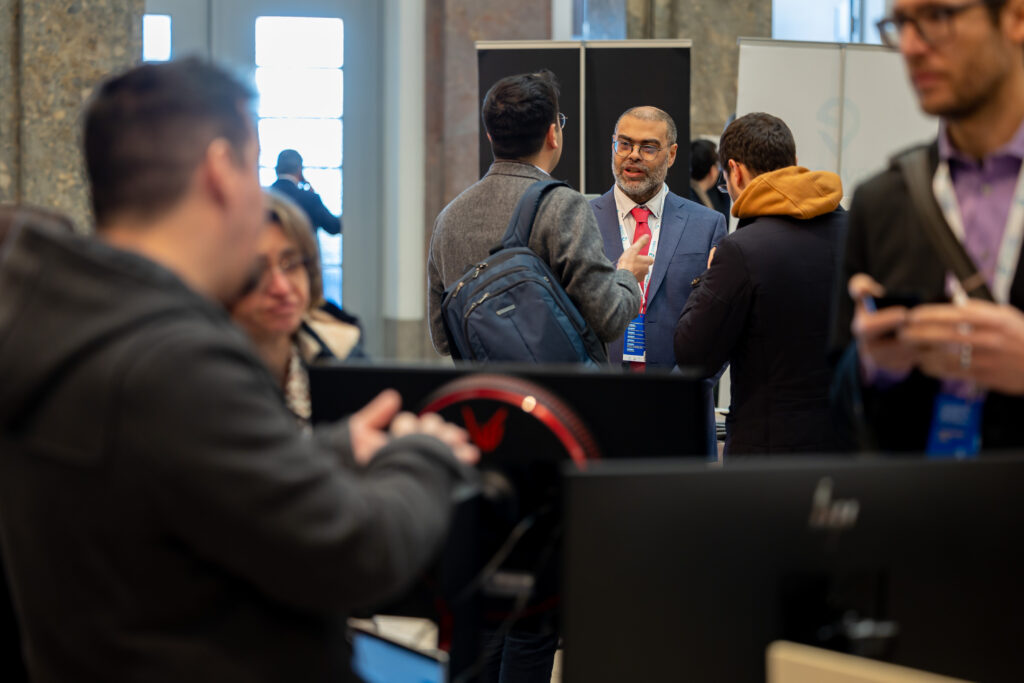
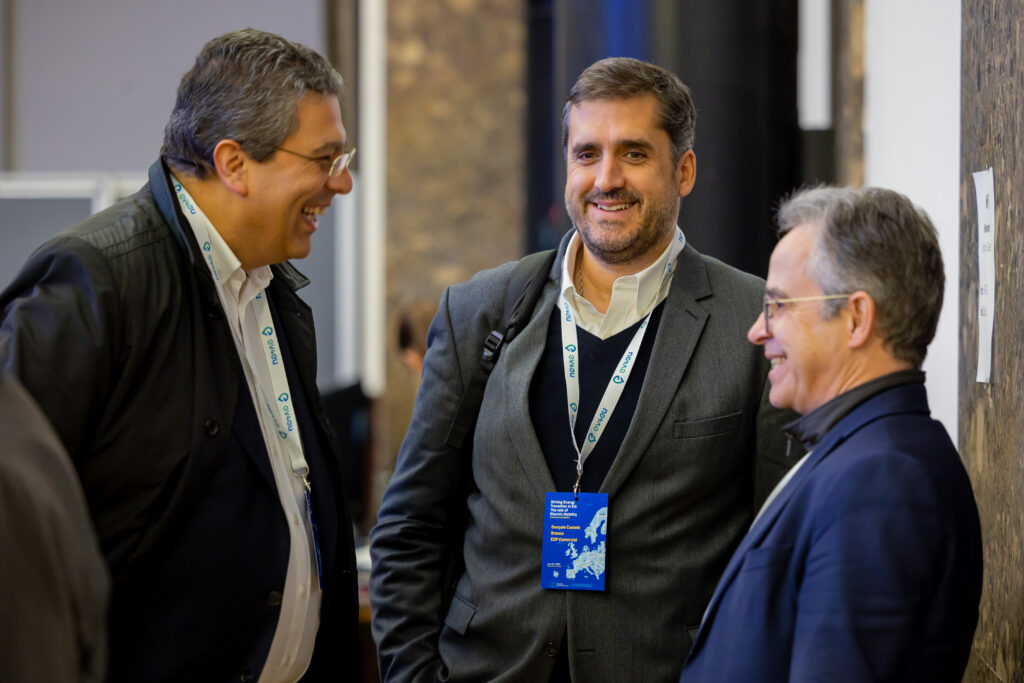
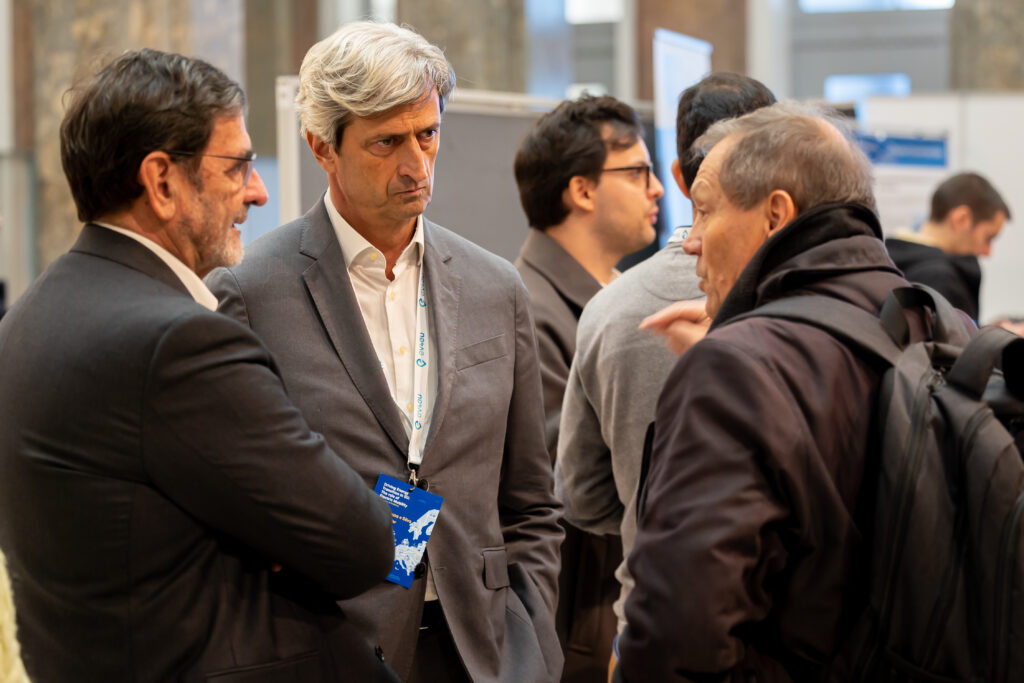
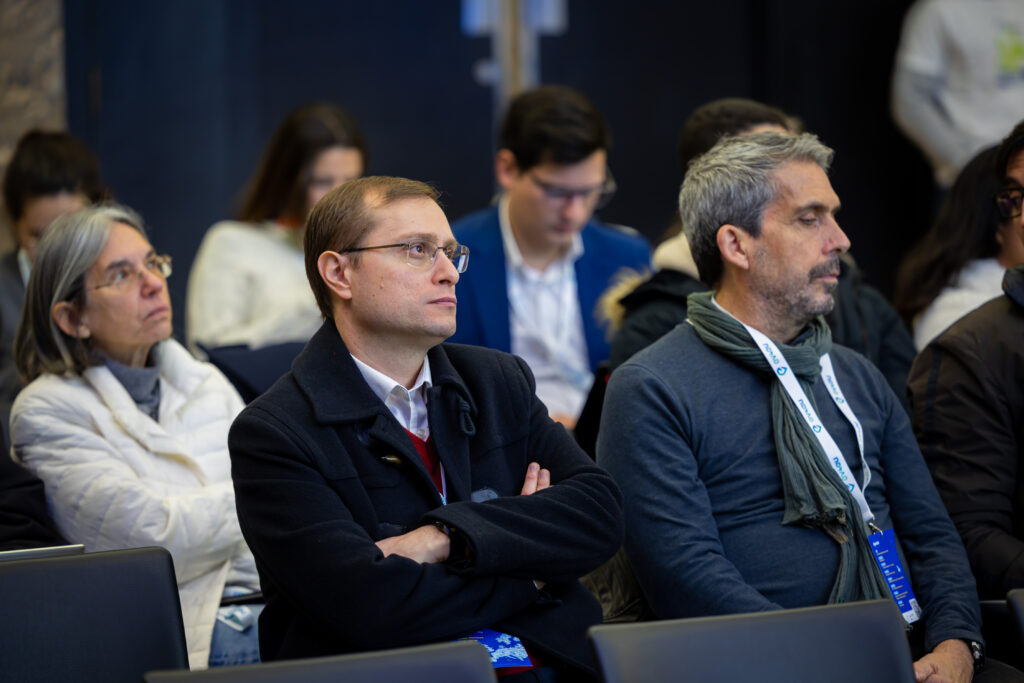
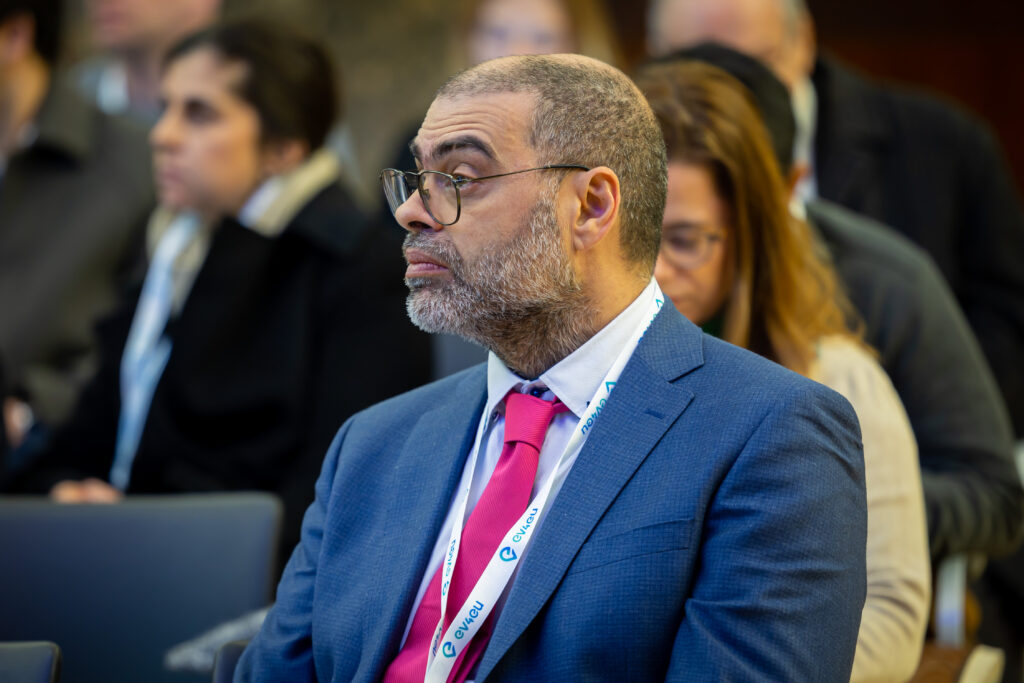
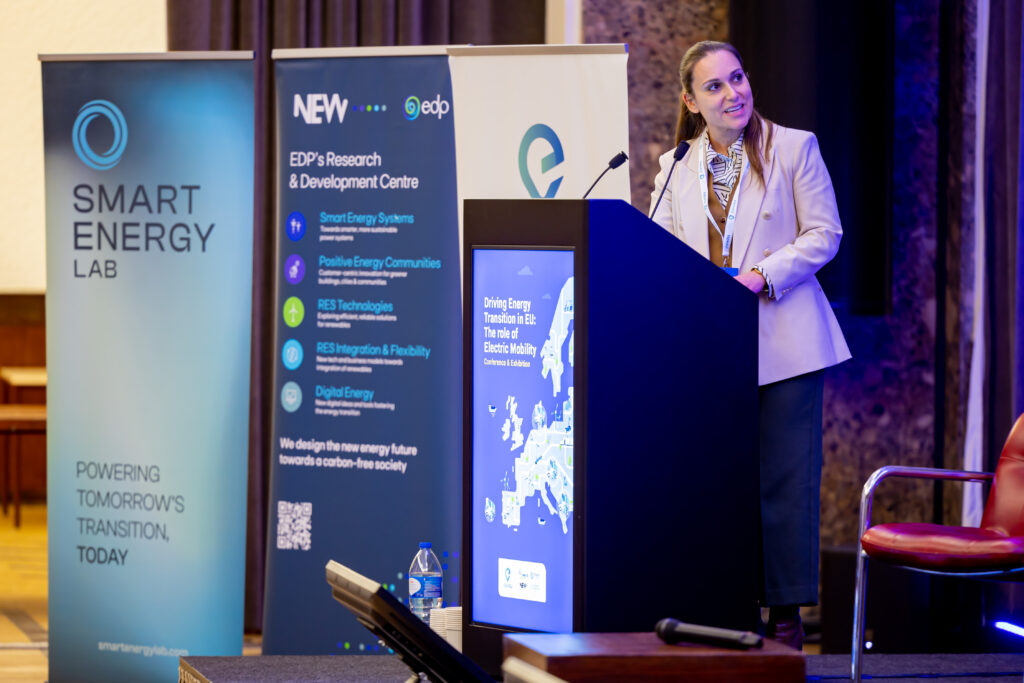
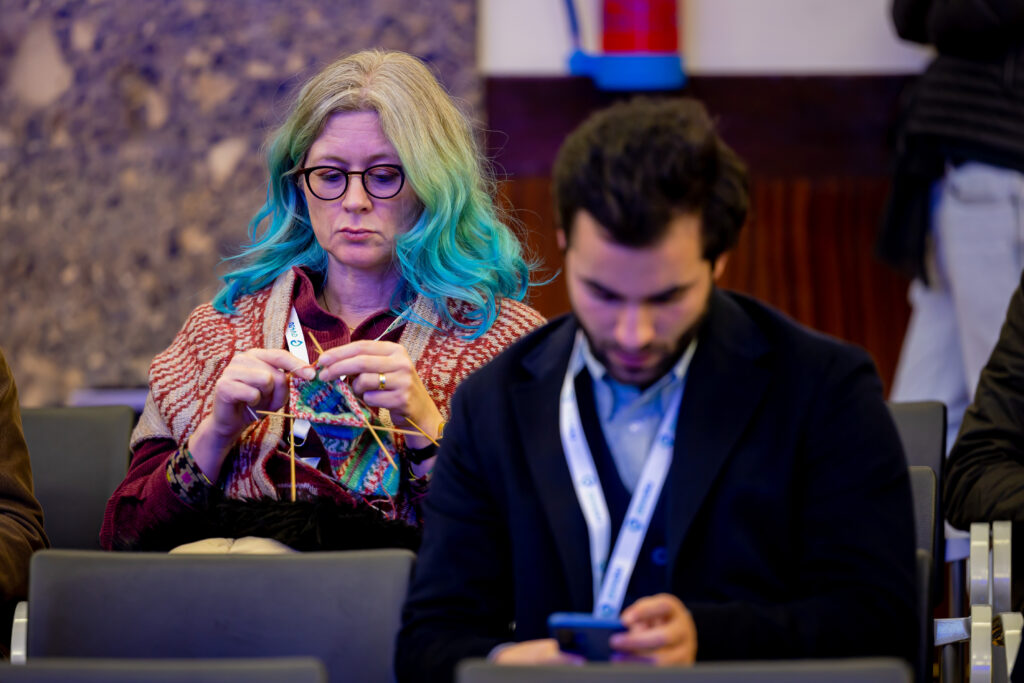
LIST of Exhibition Booths
- INESC-ID I With a look into the Institute initiatives on Green Mobility.
- EDP NEW I The R&D arm of the EDP Group was at the event to showcase the work being developed on technology and knowledge development.
- Smart Energy LAB I Presenting EDGE, the ultimate #EV charging solution for buildings.
- EV4EU I Sharing its cutting-edge #V2X technologies developed at the 4 Demo sites in Portugal, Slovenia, Greece, and Denmark.
- DEEC Técnico I More on how the Department of Electrical and Computer Engineering at Instituto Superior Técnico drives R&D+I through advanced curricula and research in Electronics, Energy, Systems, and more.
- Aliança para a Transição Energética I More on how INESC ID is contributing to the PRR project and to the implementation of the Energy DREAM LAB being built at Técnico.
- FST Lisboa I A look into the FST 13 race car: the latest prototype, 100% electric vehicle, with autonomous capabilities.
- e-mob – smart charging solutions I Since 2015, E-mob has been promoting electric mobility in 🇵🇹providing the best charging solutions for electric and hybrid vehicles.
- MOBI.E I MOBI.E connects charging point operators, energy retailers, and EV users in Portugal.
- i-charging I i-charging develops hardware and software solutions for electric mobility, focusing on quality, design, and differentiation.
- Stellantis I Is one of the world’s leading automakers, recognized for its iconic brands, including Abarth, Alfa Romeo, Chrysler, Citroën, Dodge, DS Automobiles, FIAT, Jeep®, Lancia, Maserati, Opel, Peugeot. Stellantis promoted a great Test drive with three electric vehicles throughout the day: Peugeot 5008, the all-new Fiat 600, and the Citroën C3.


Comments are closed.